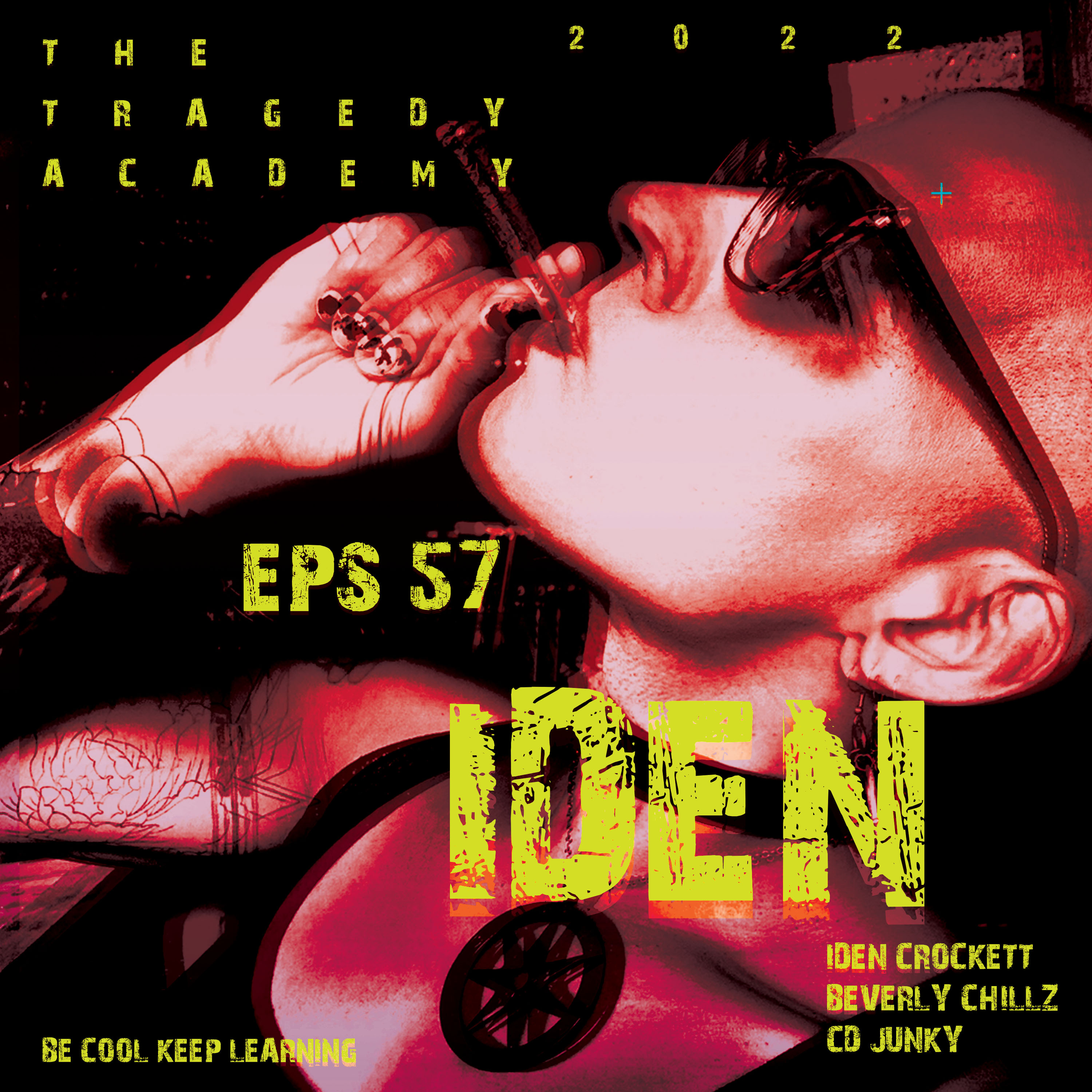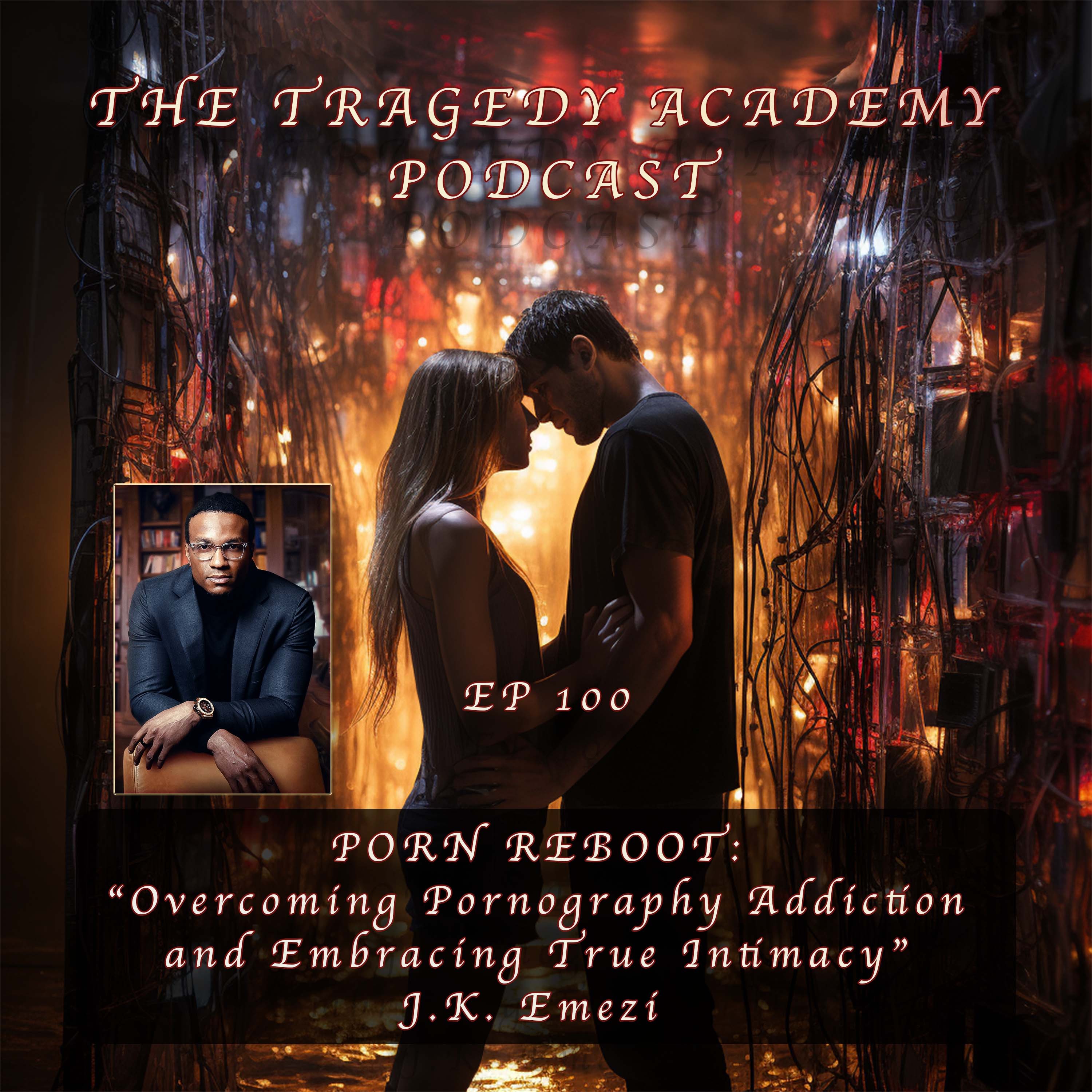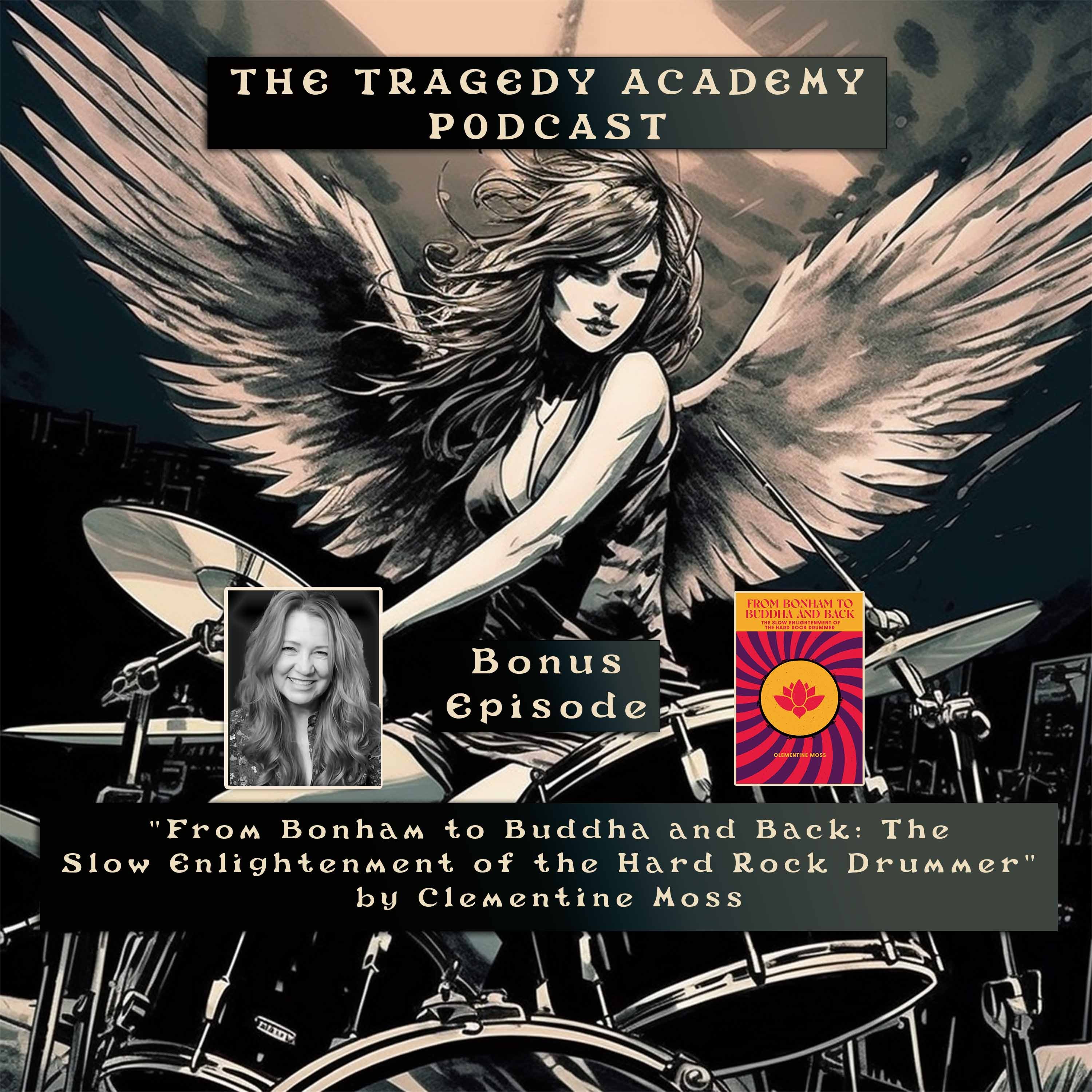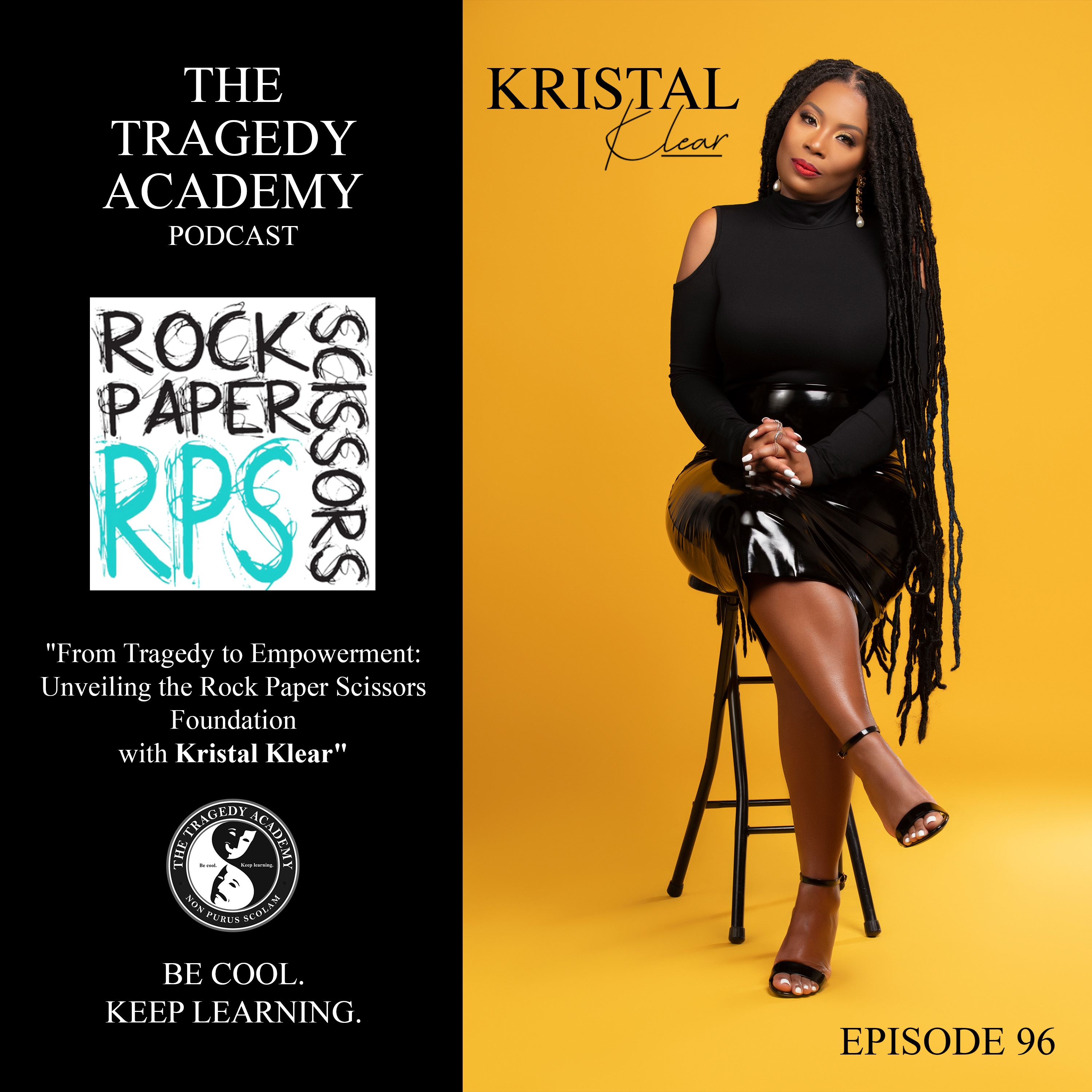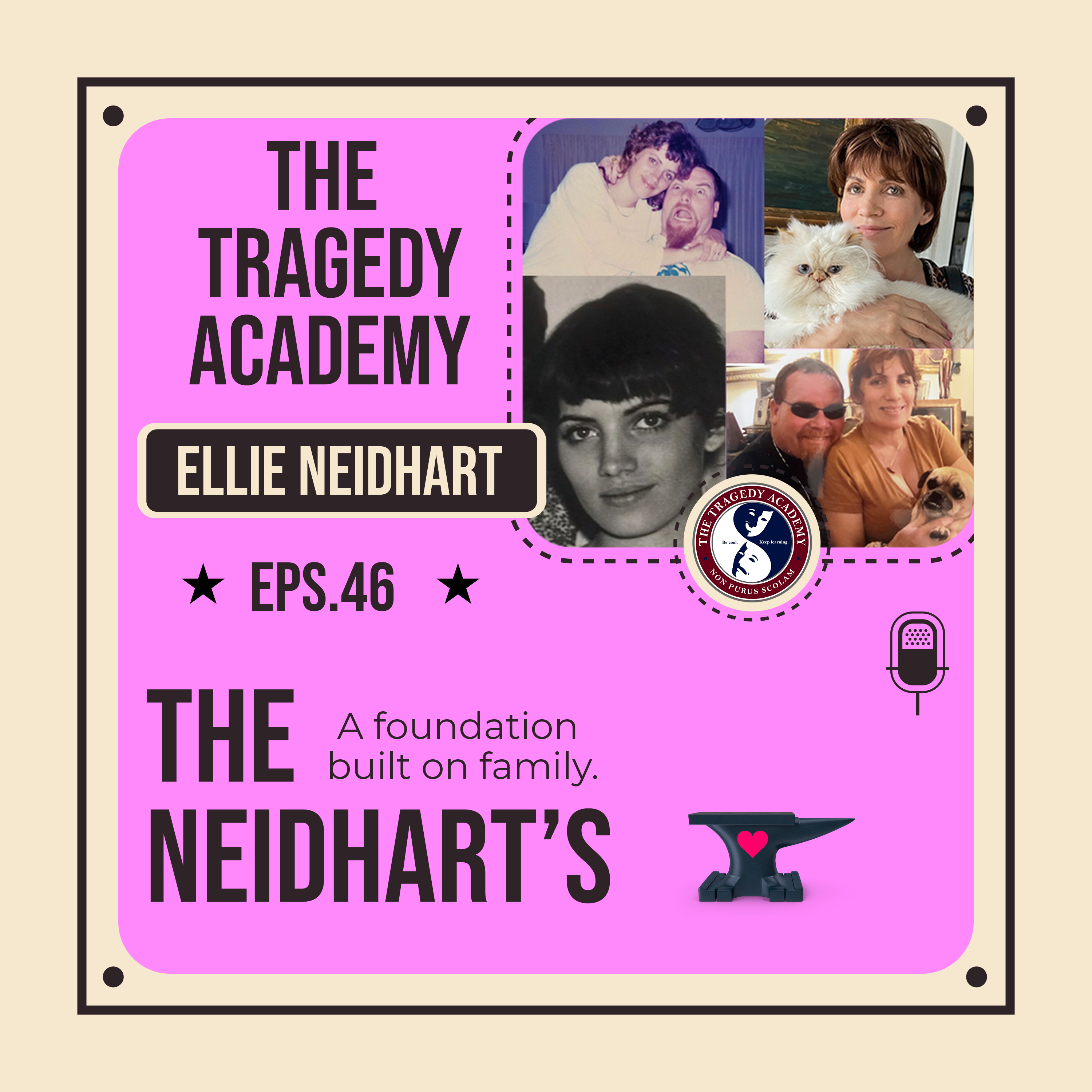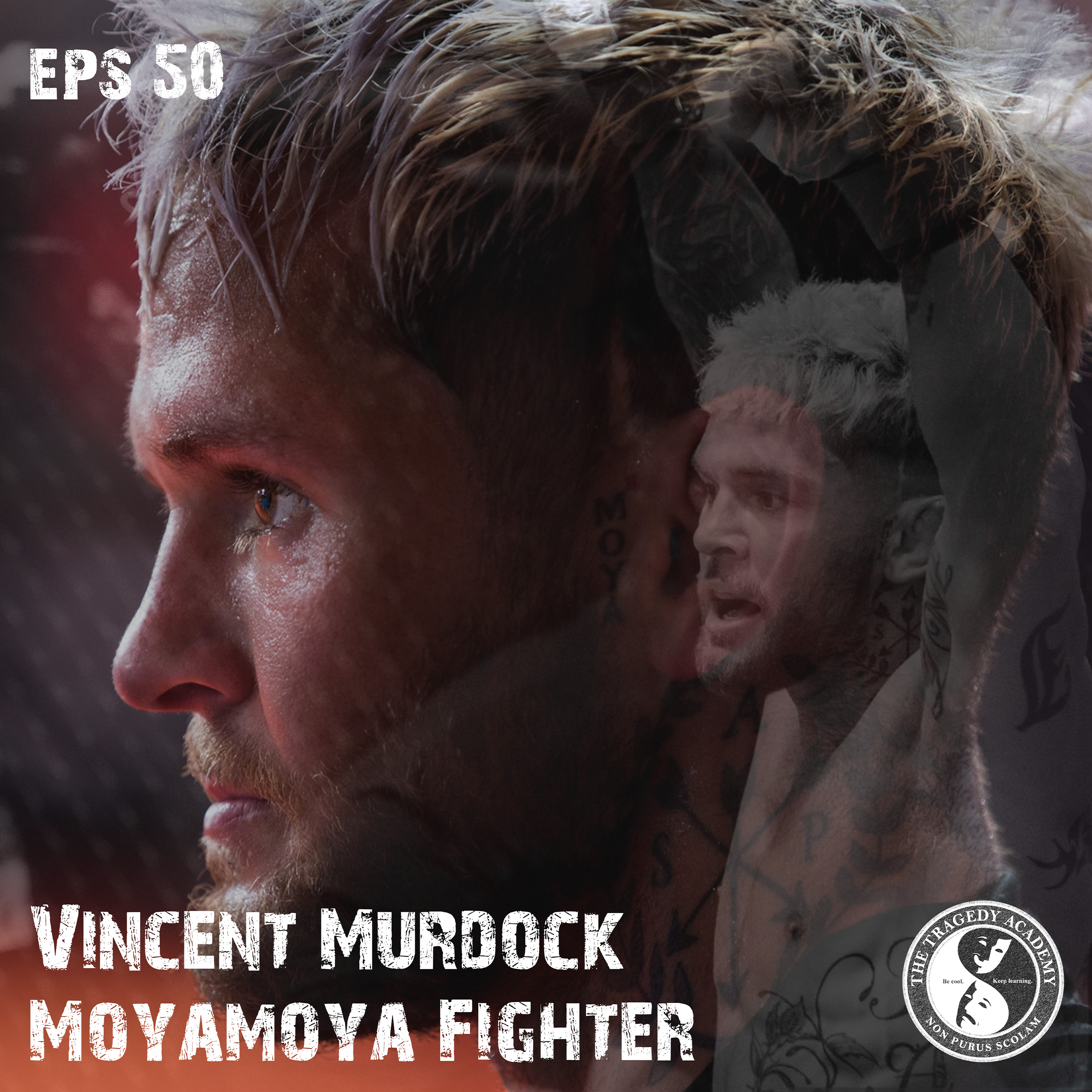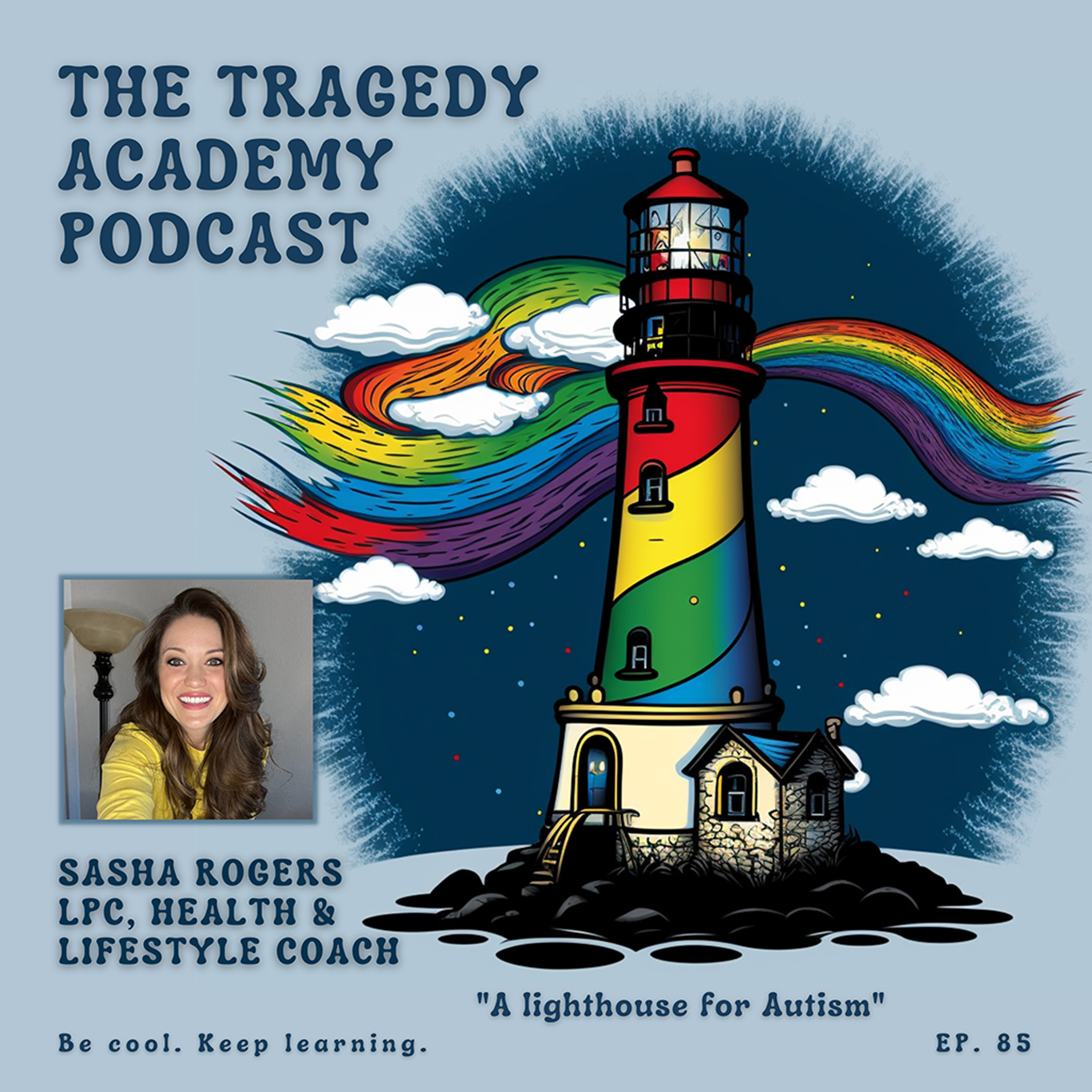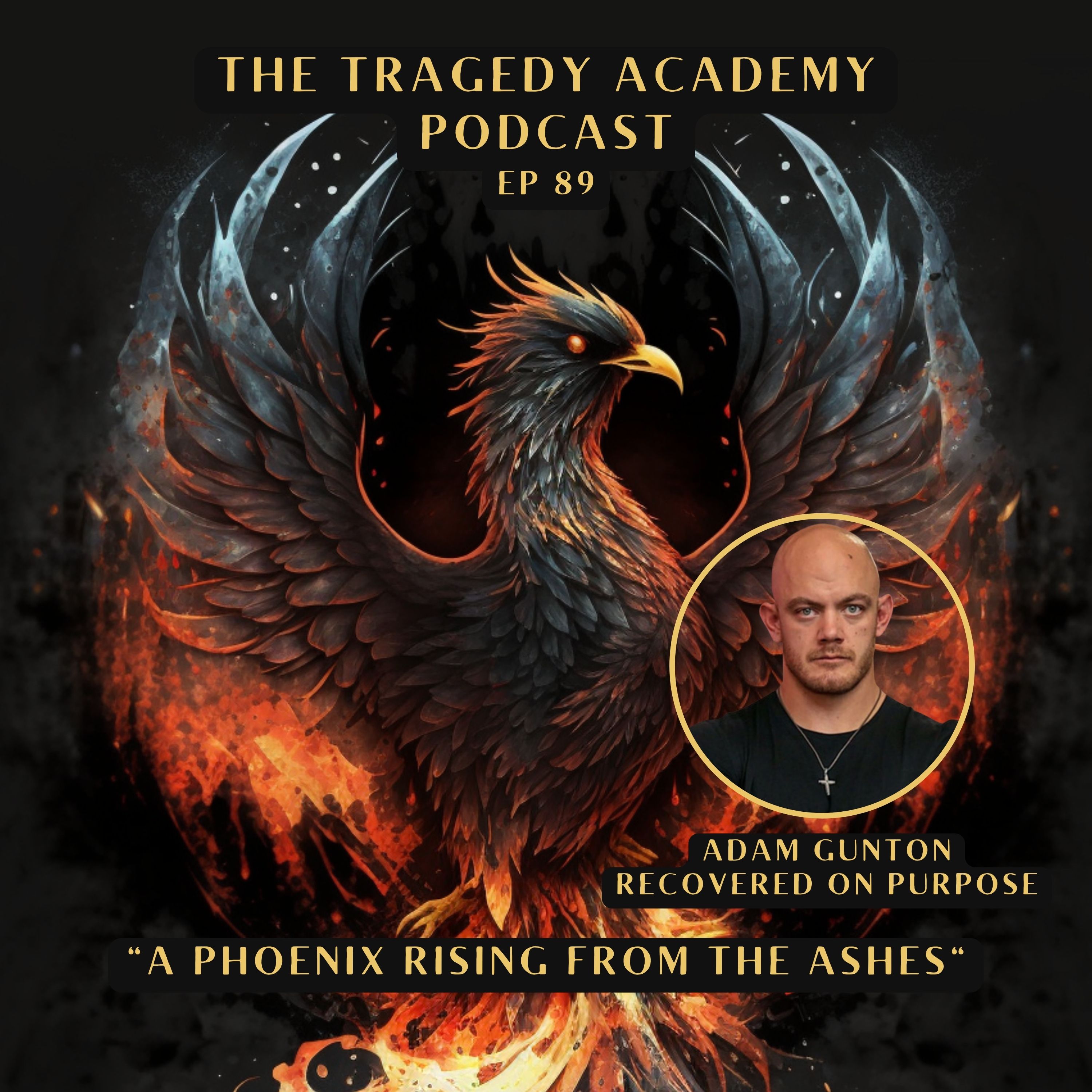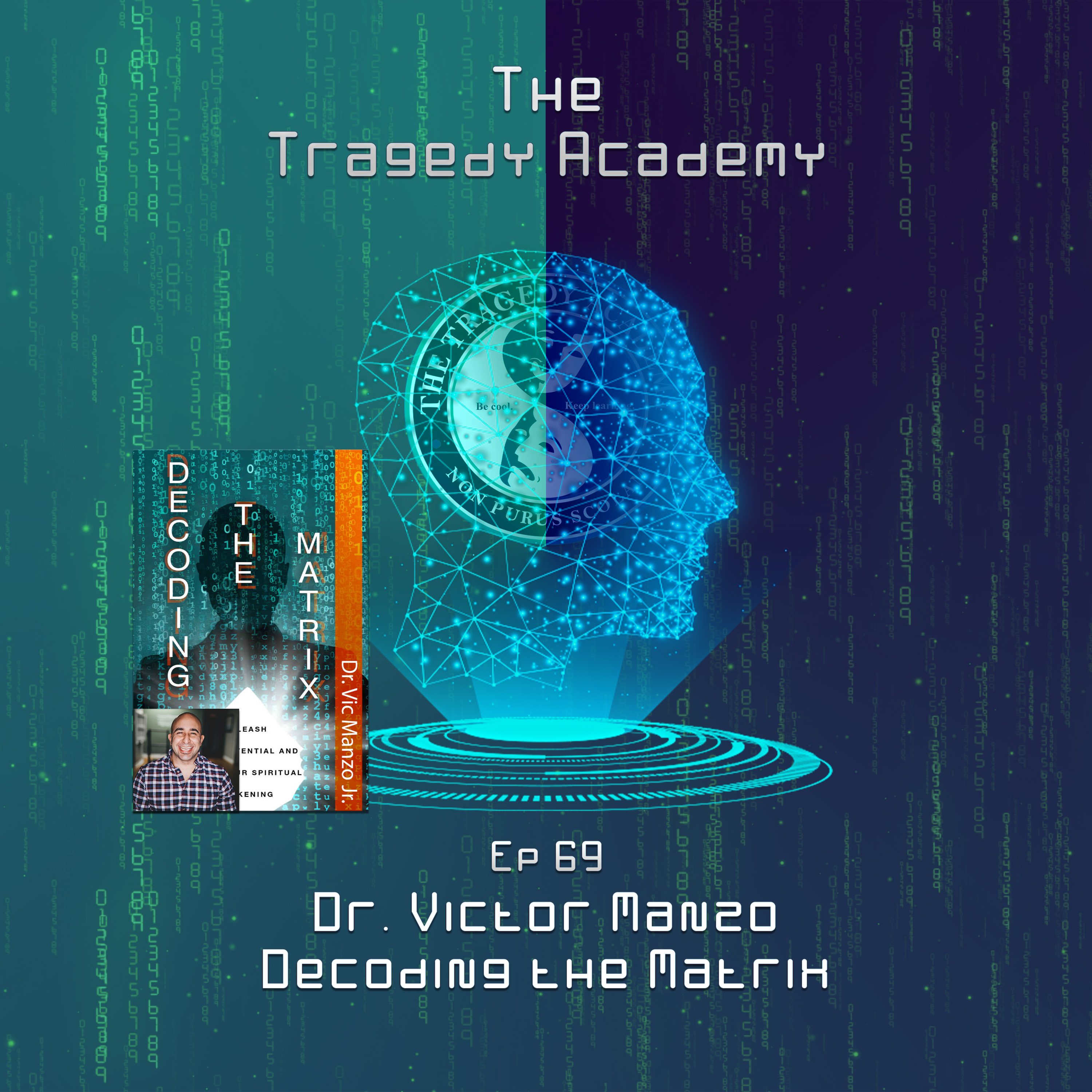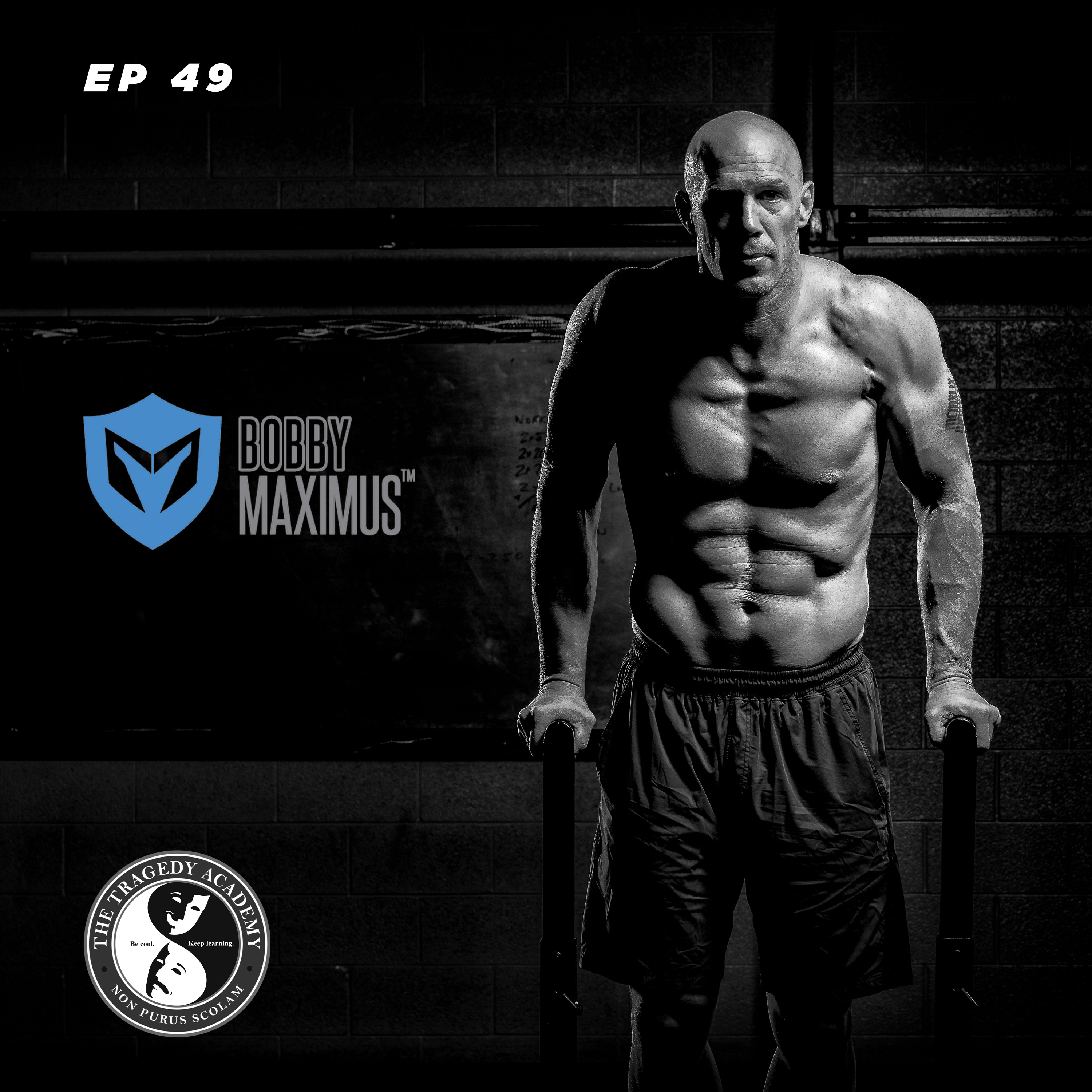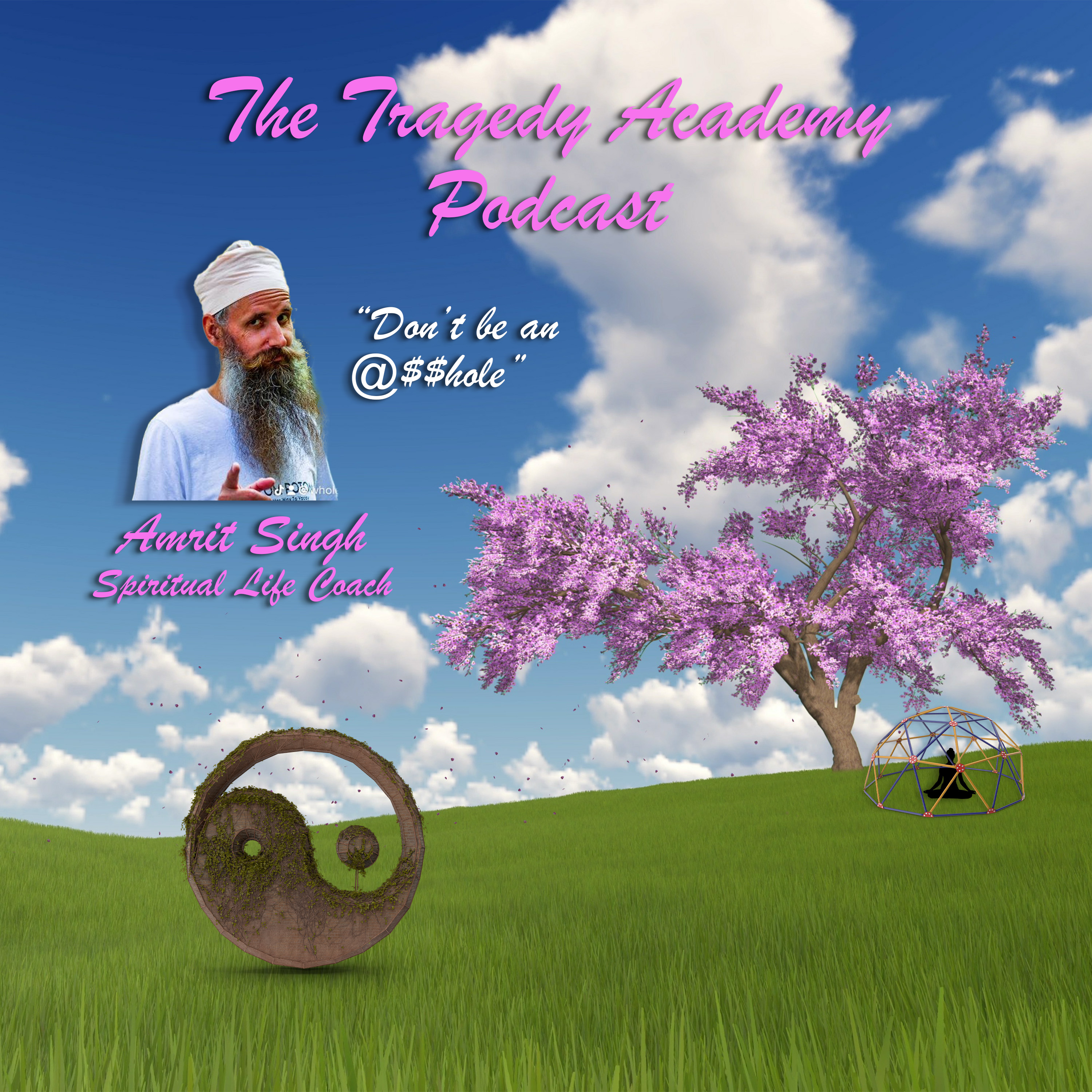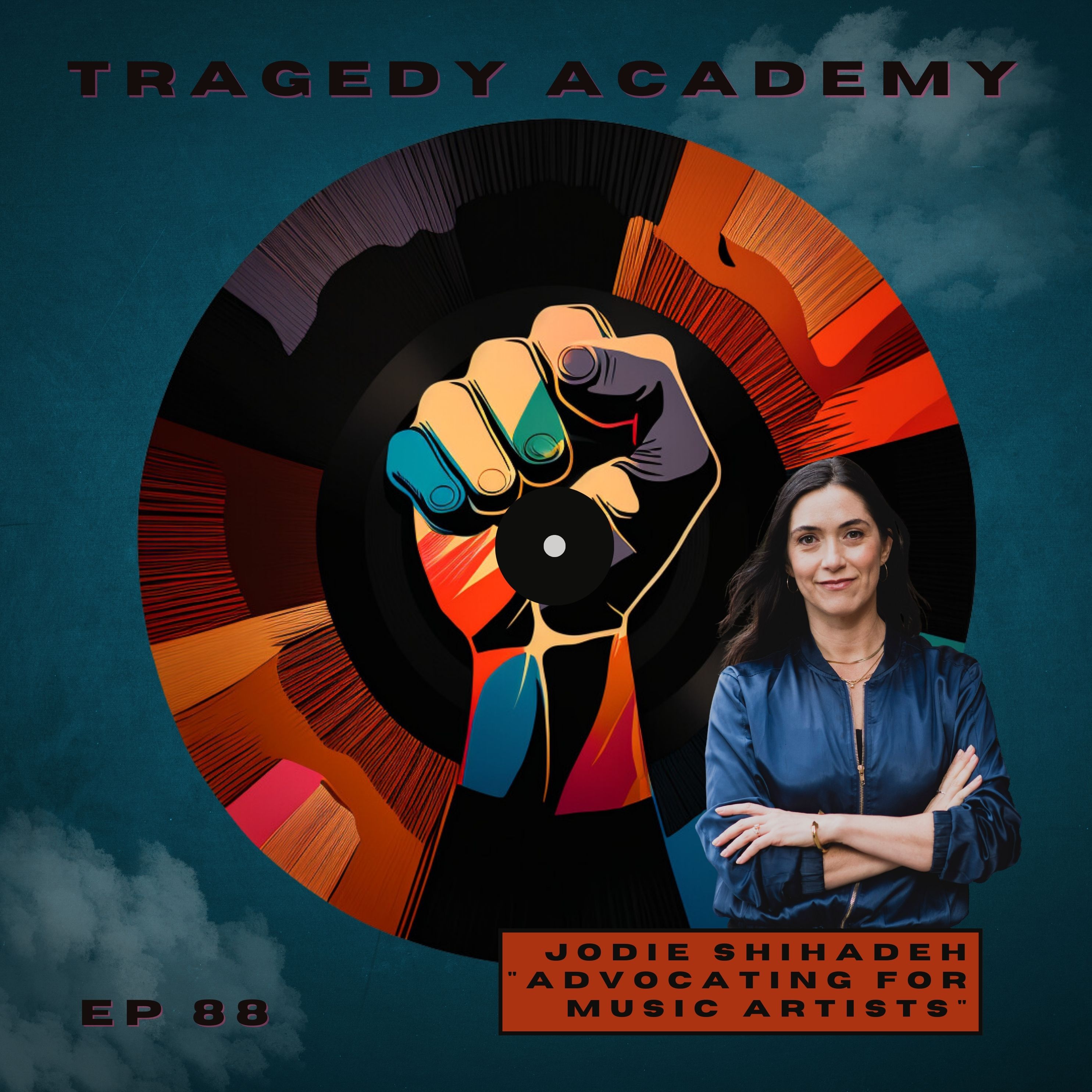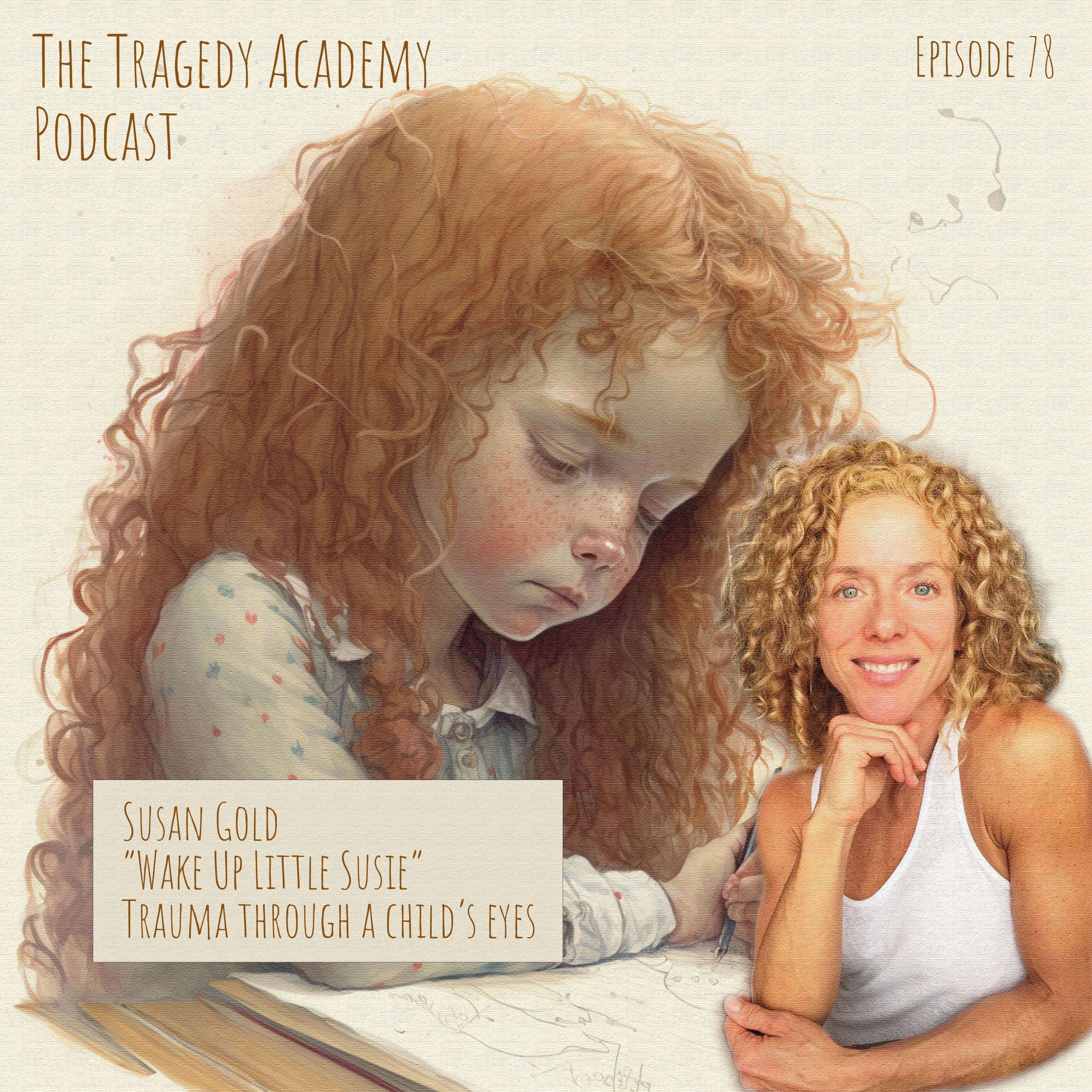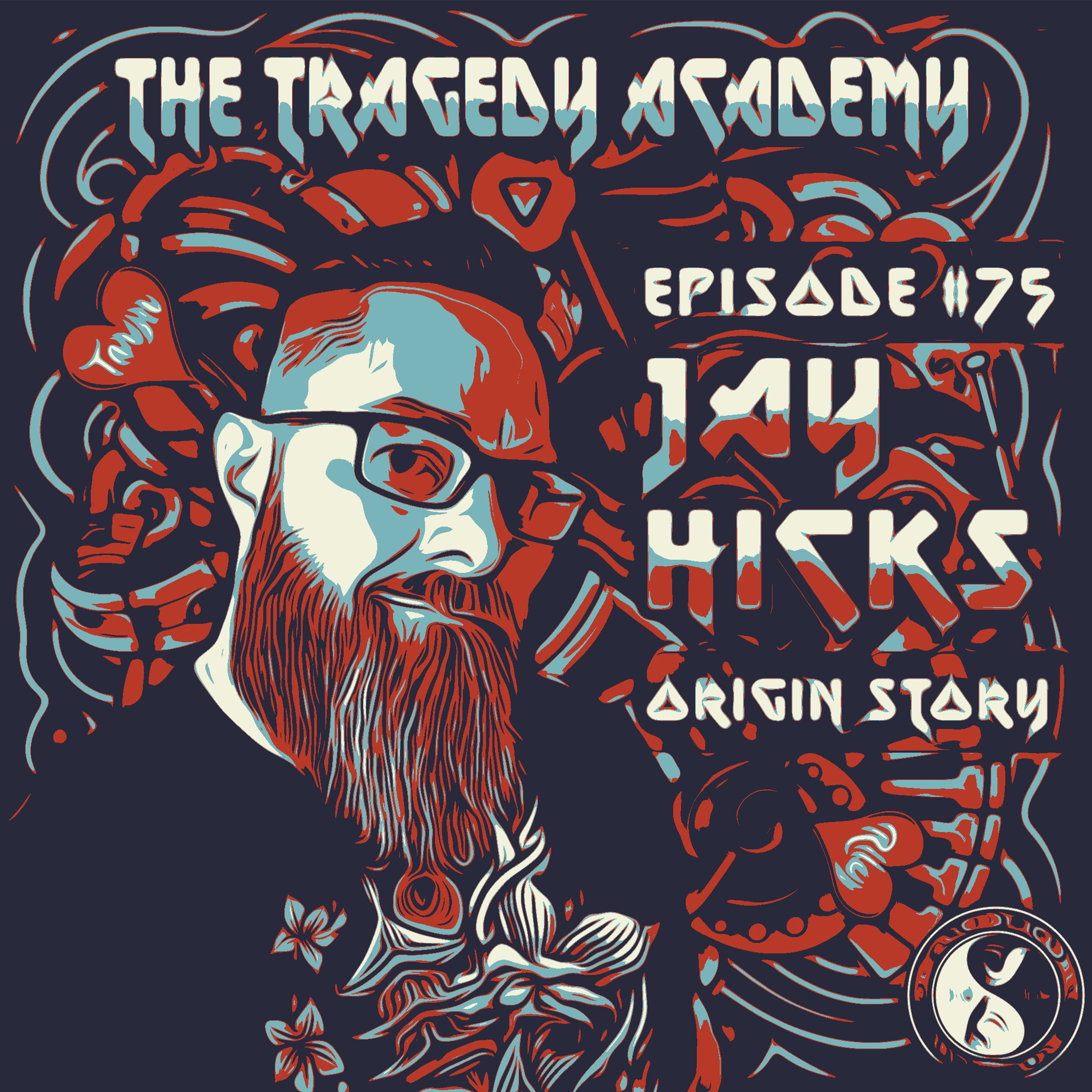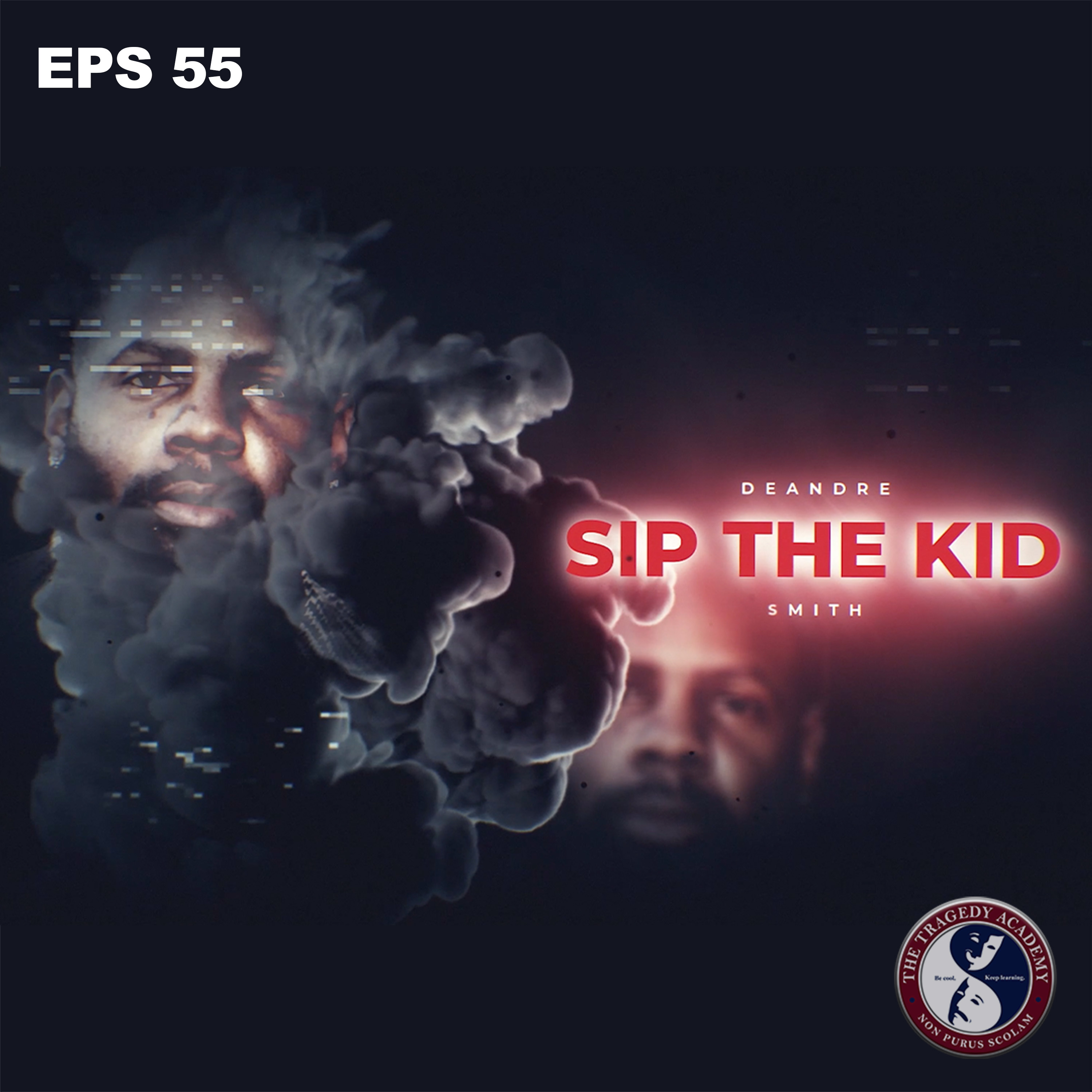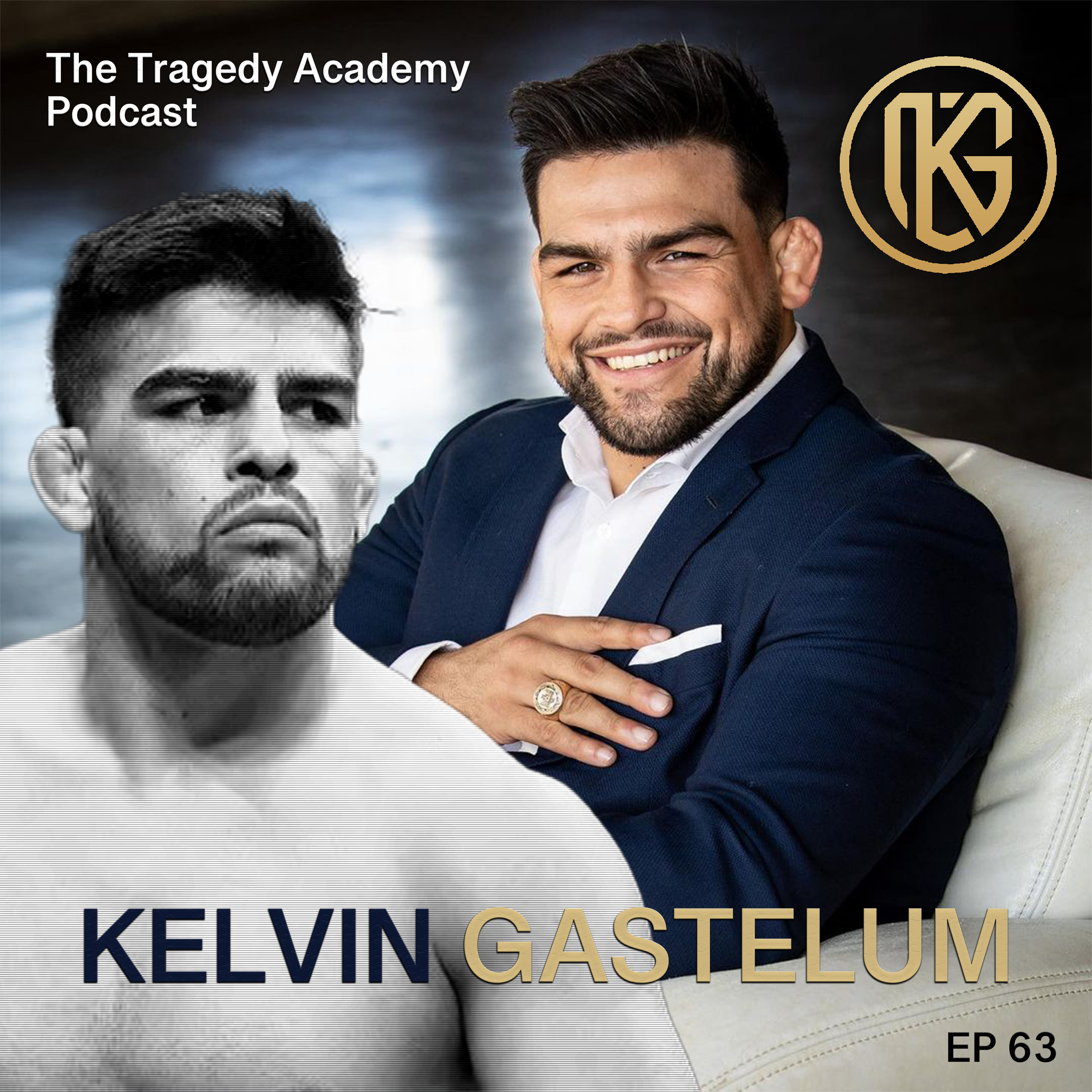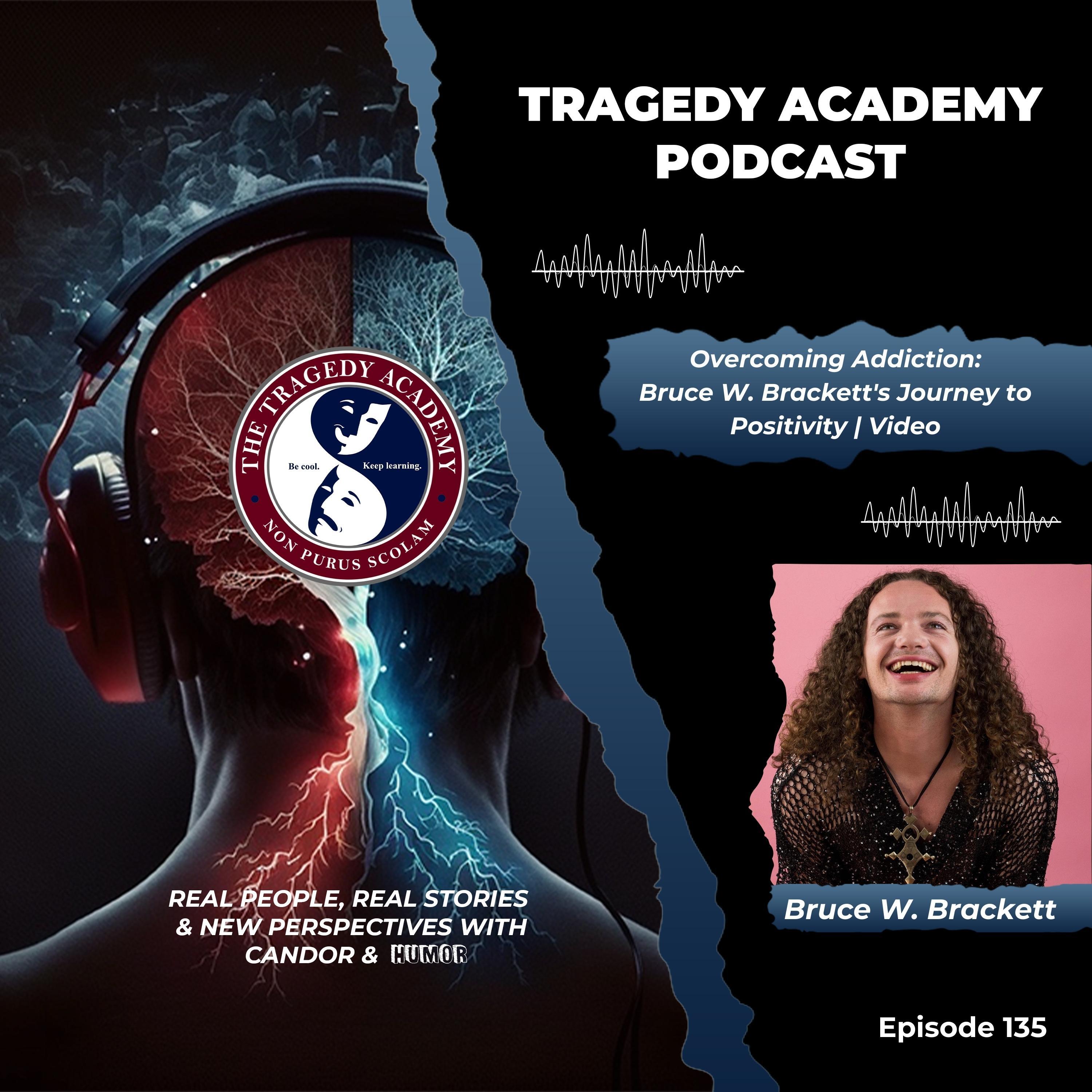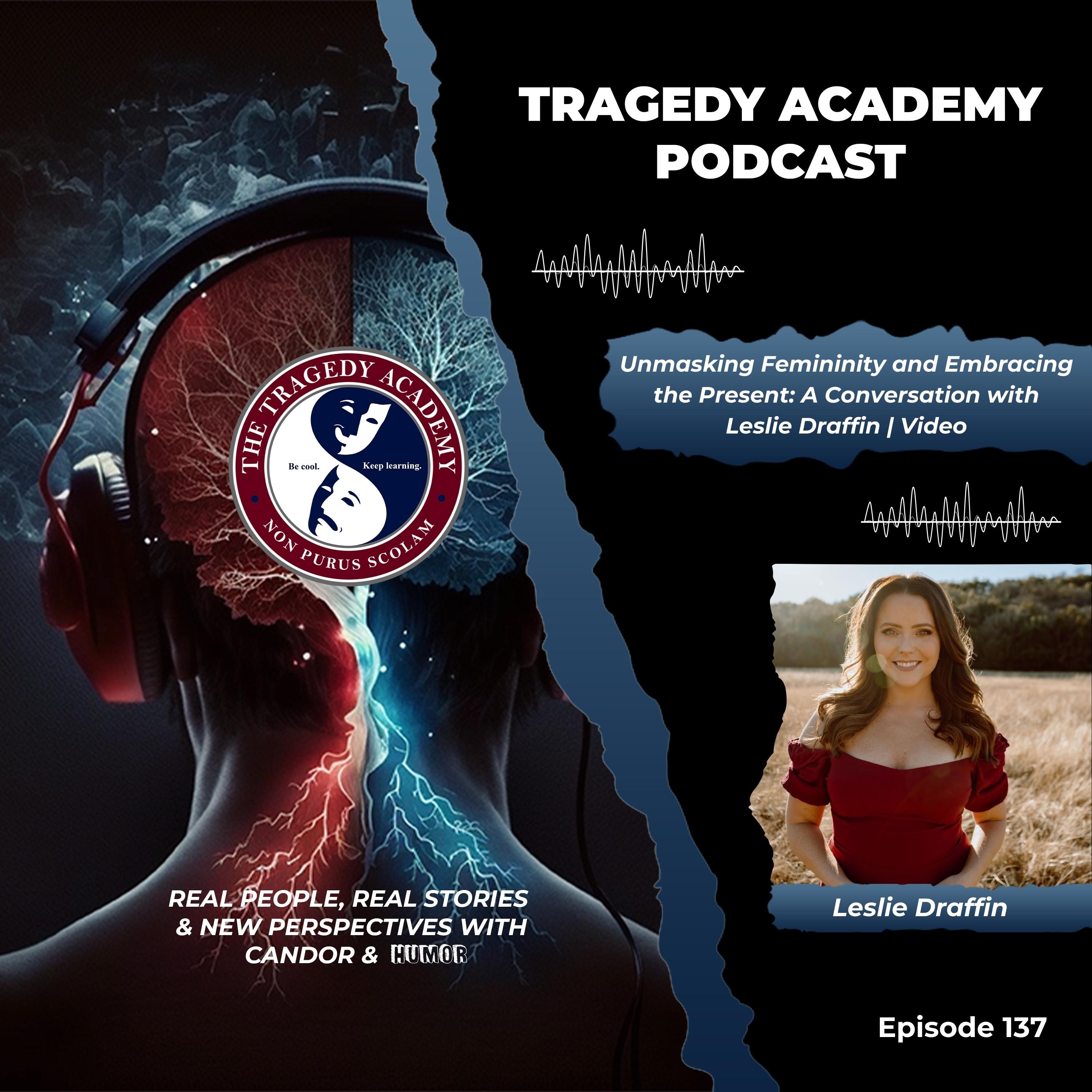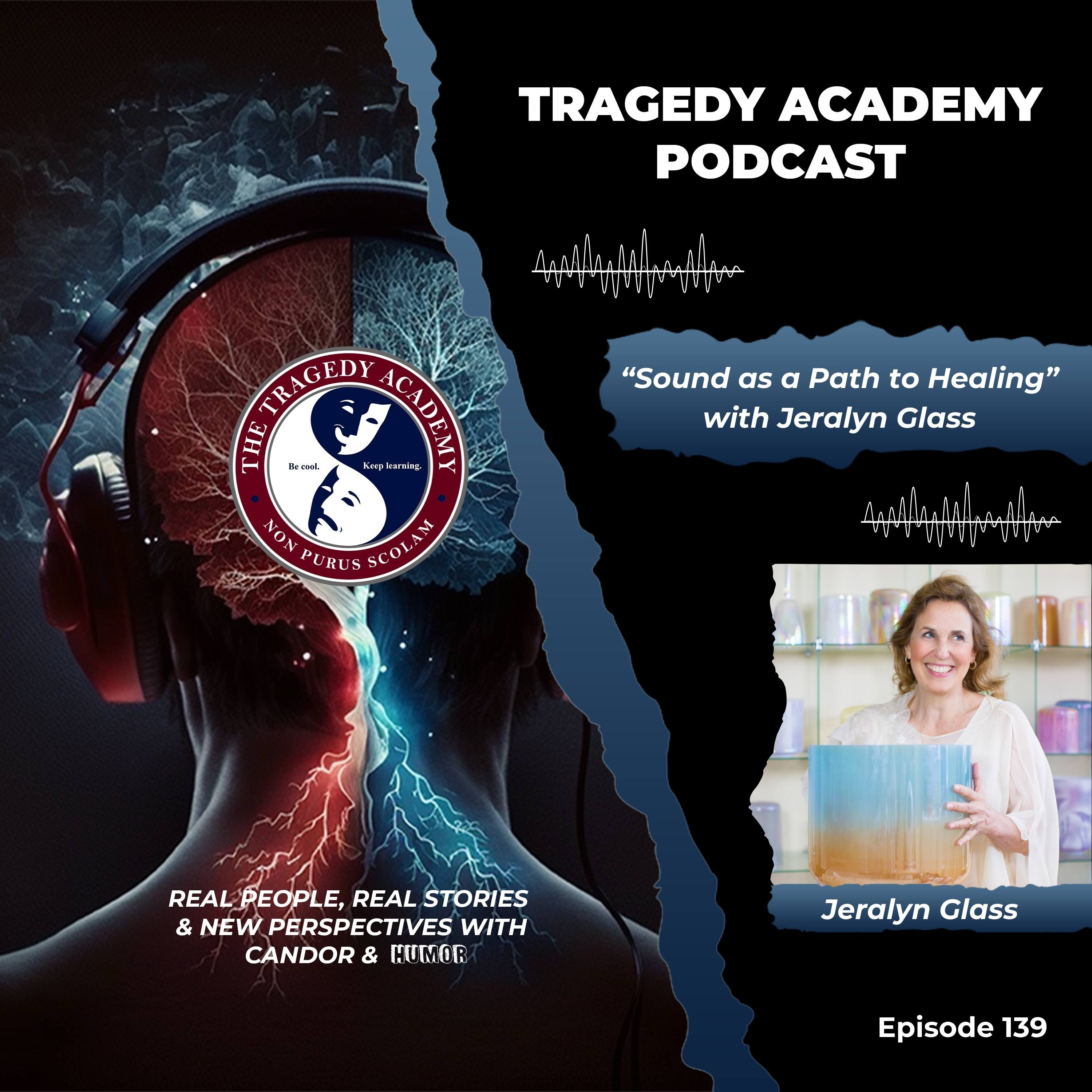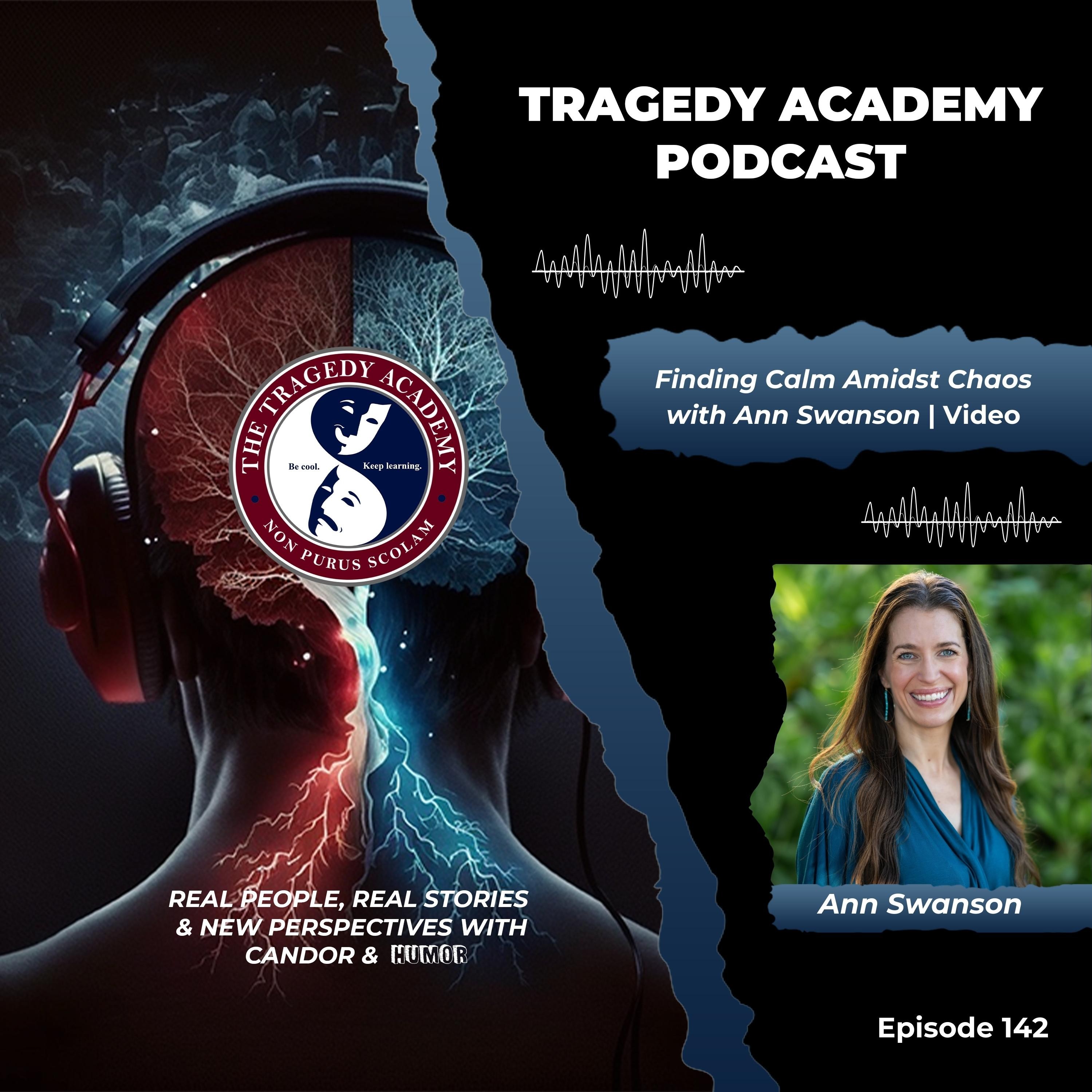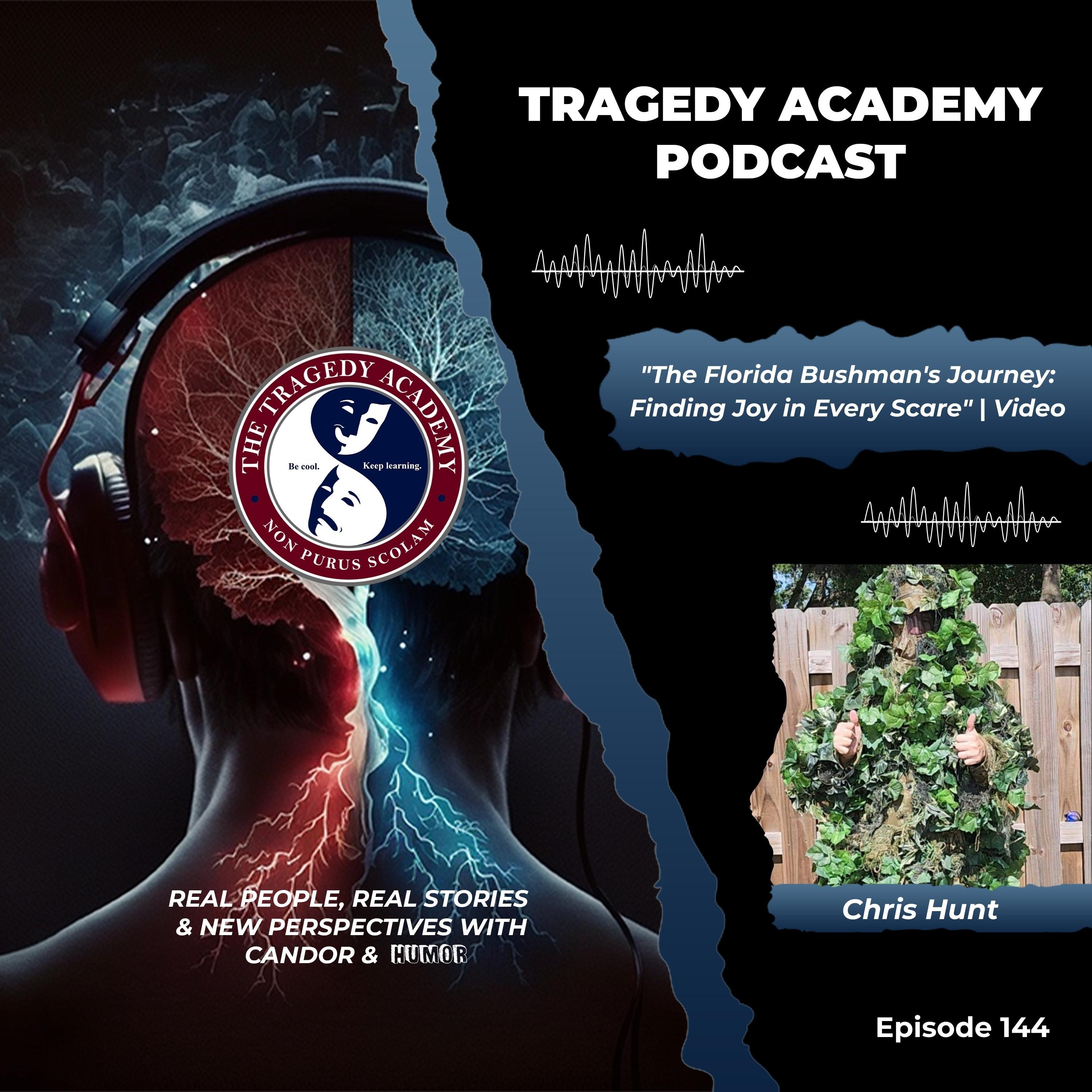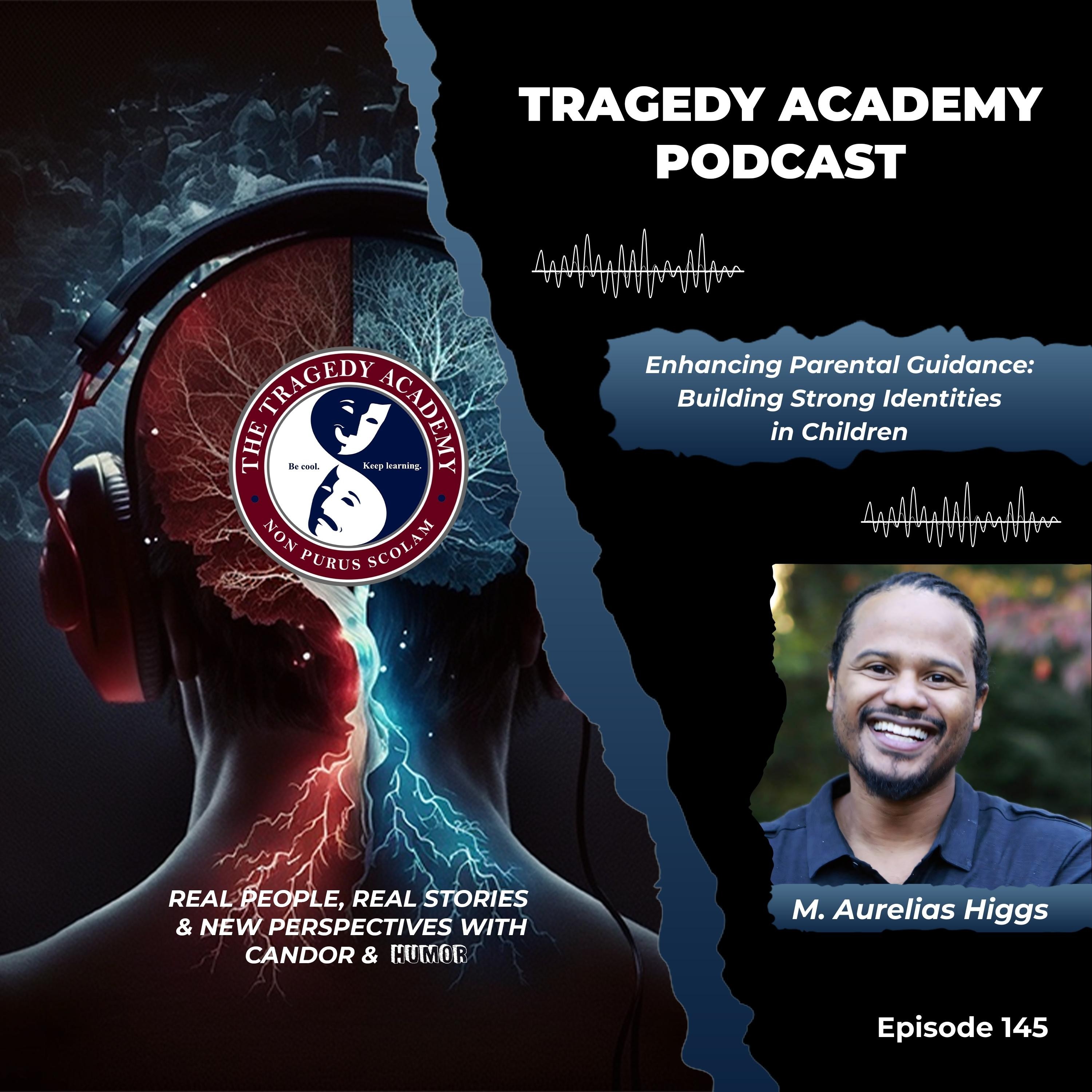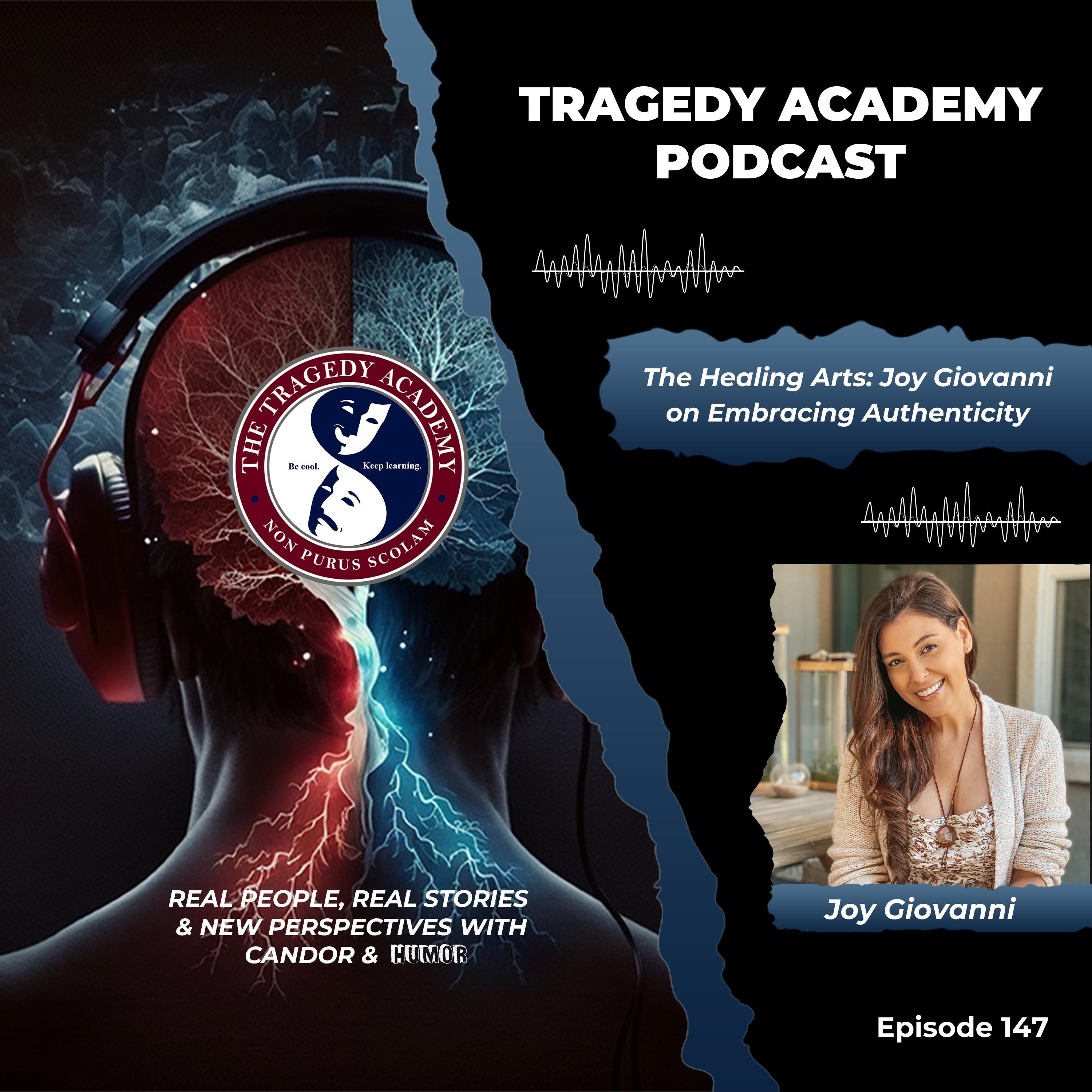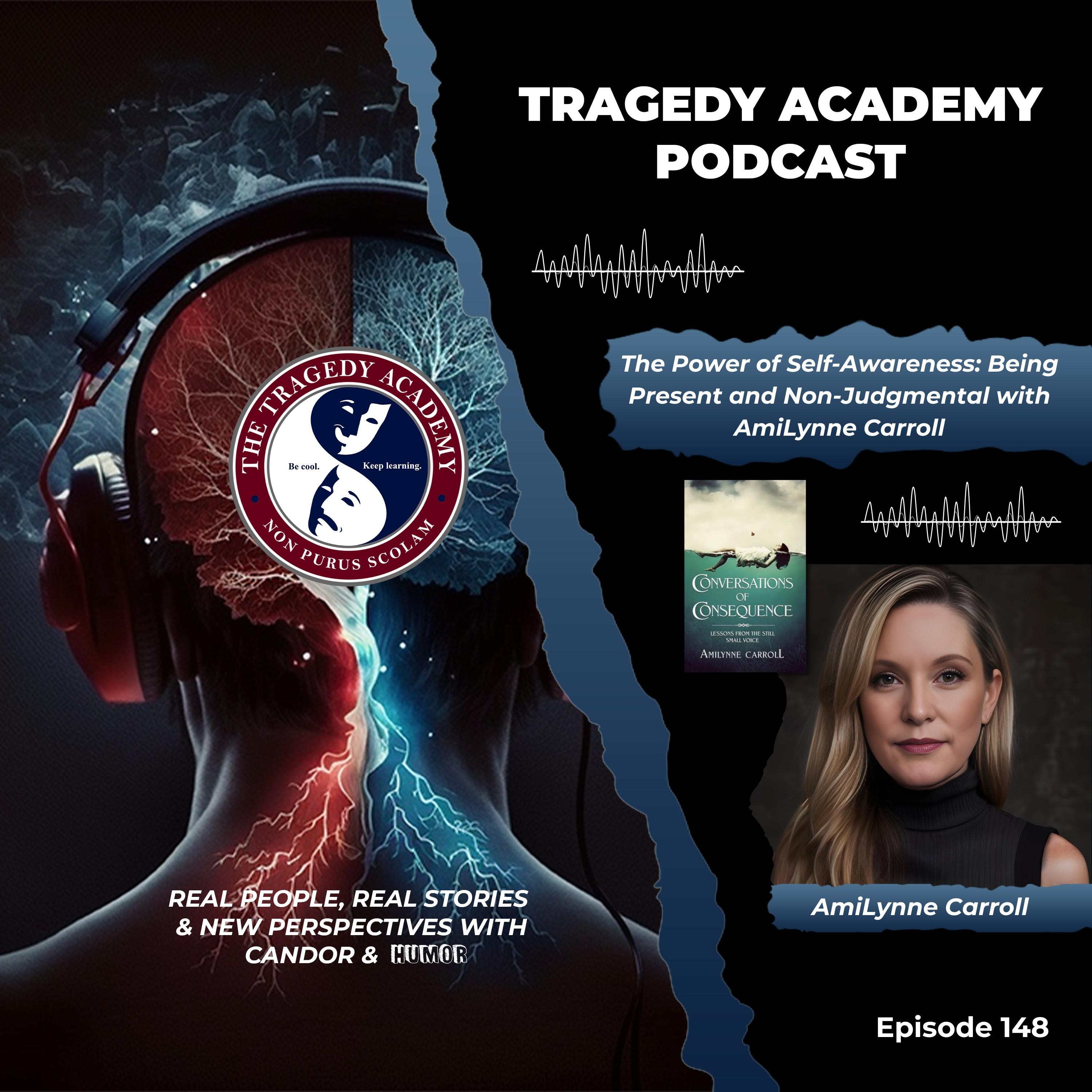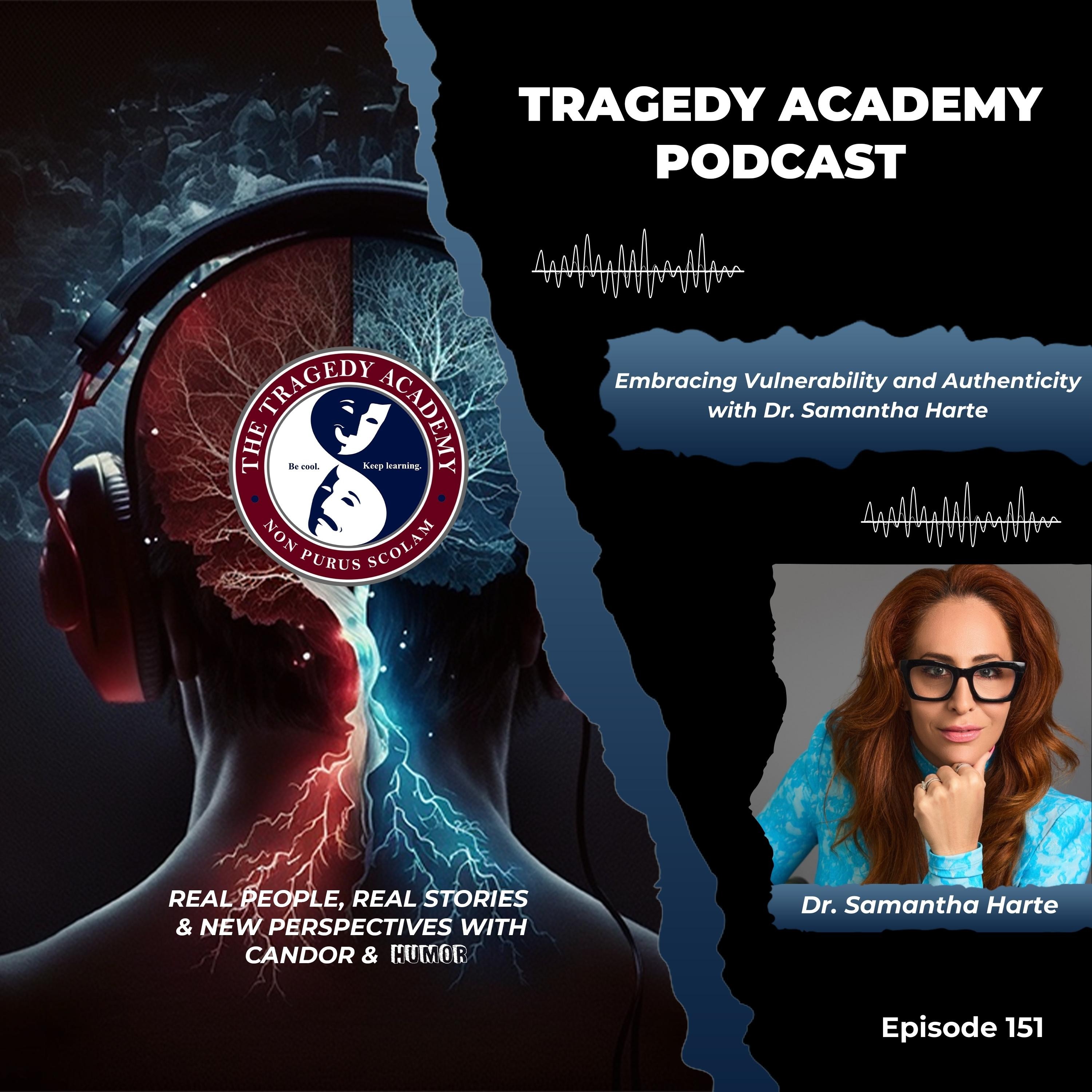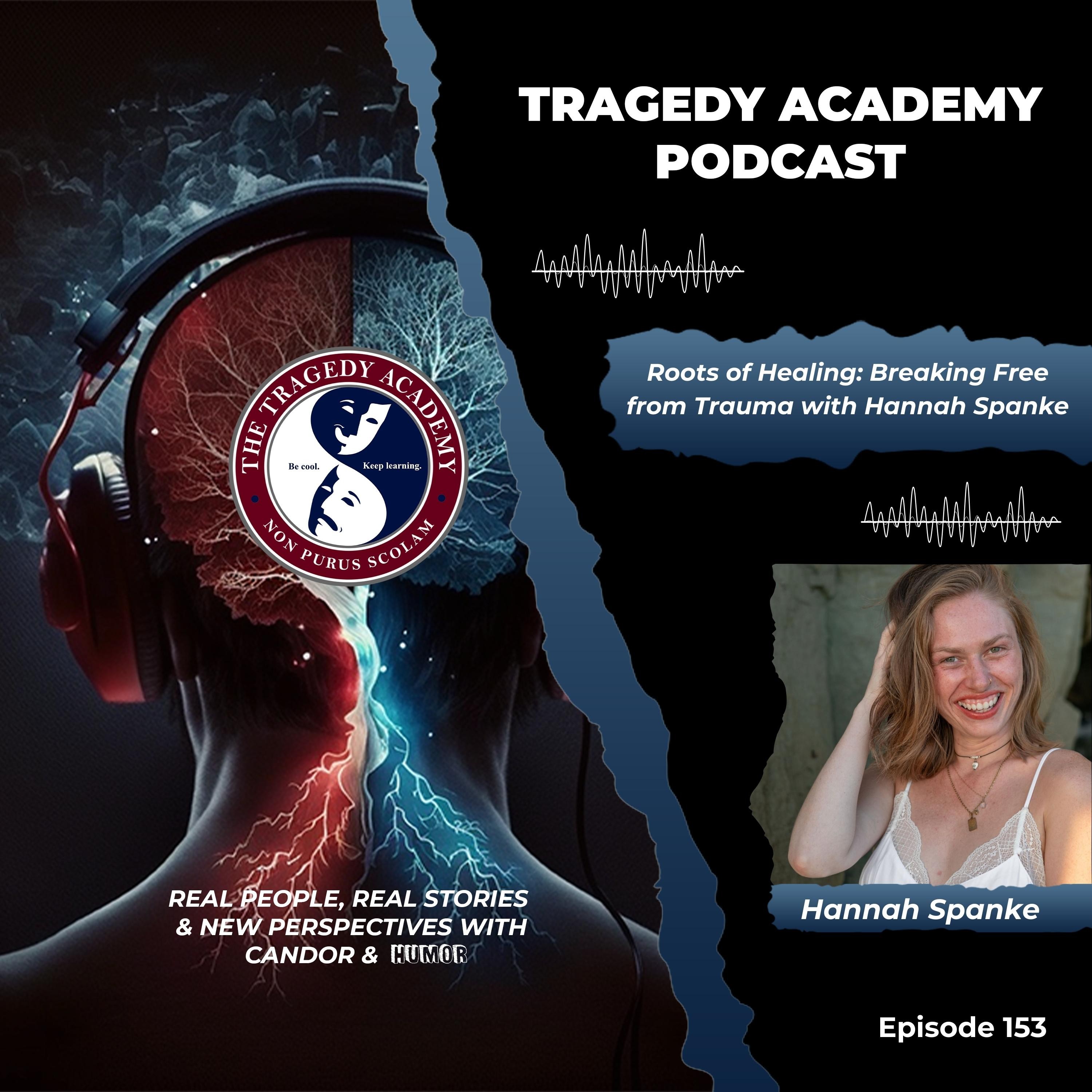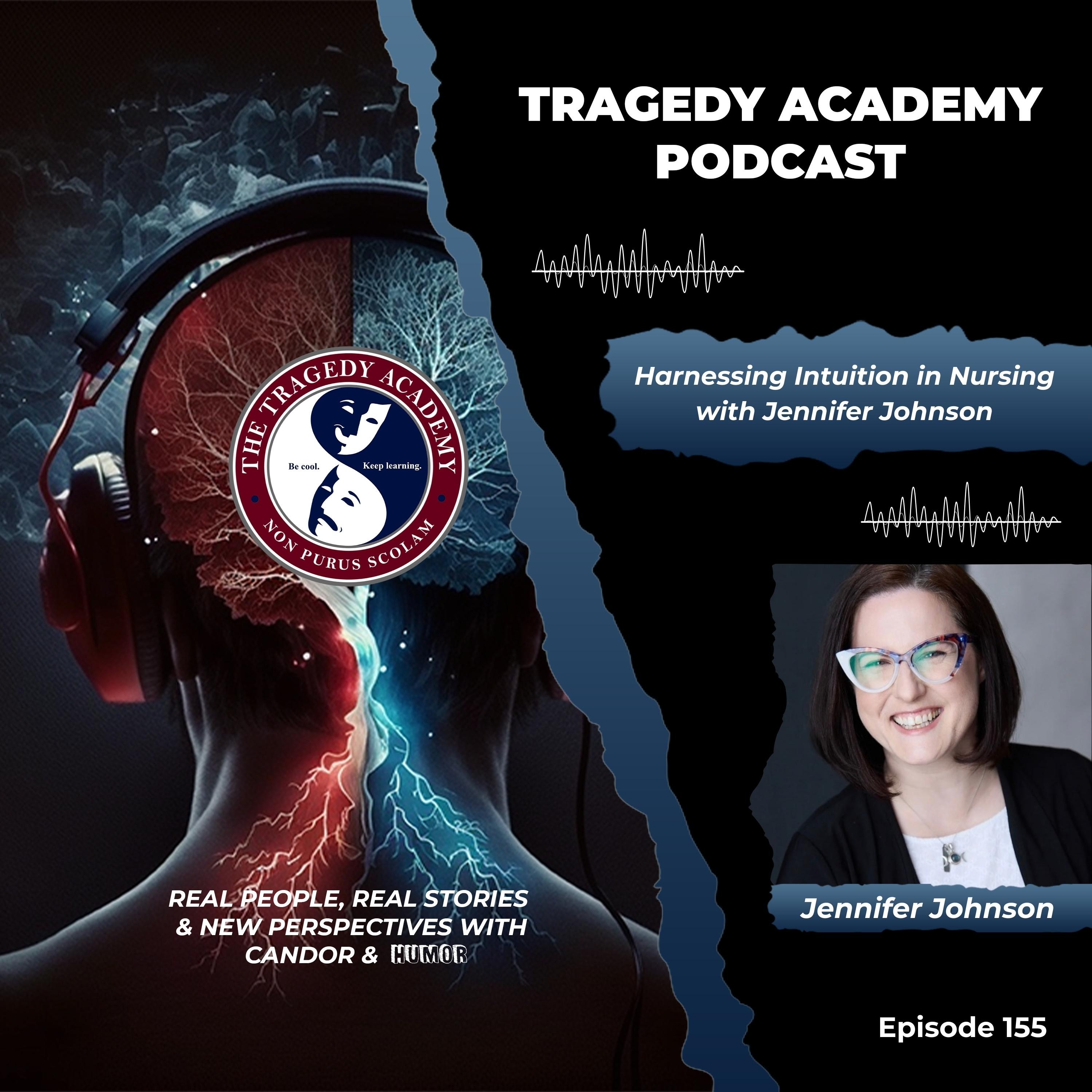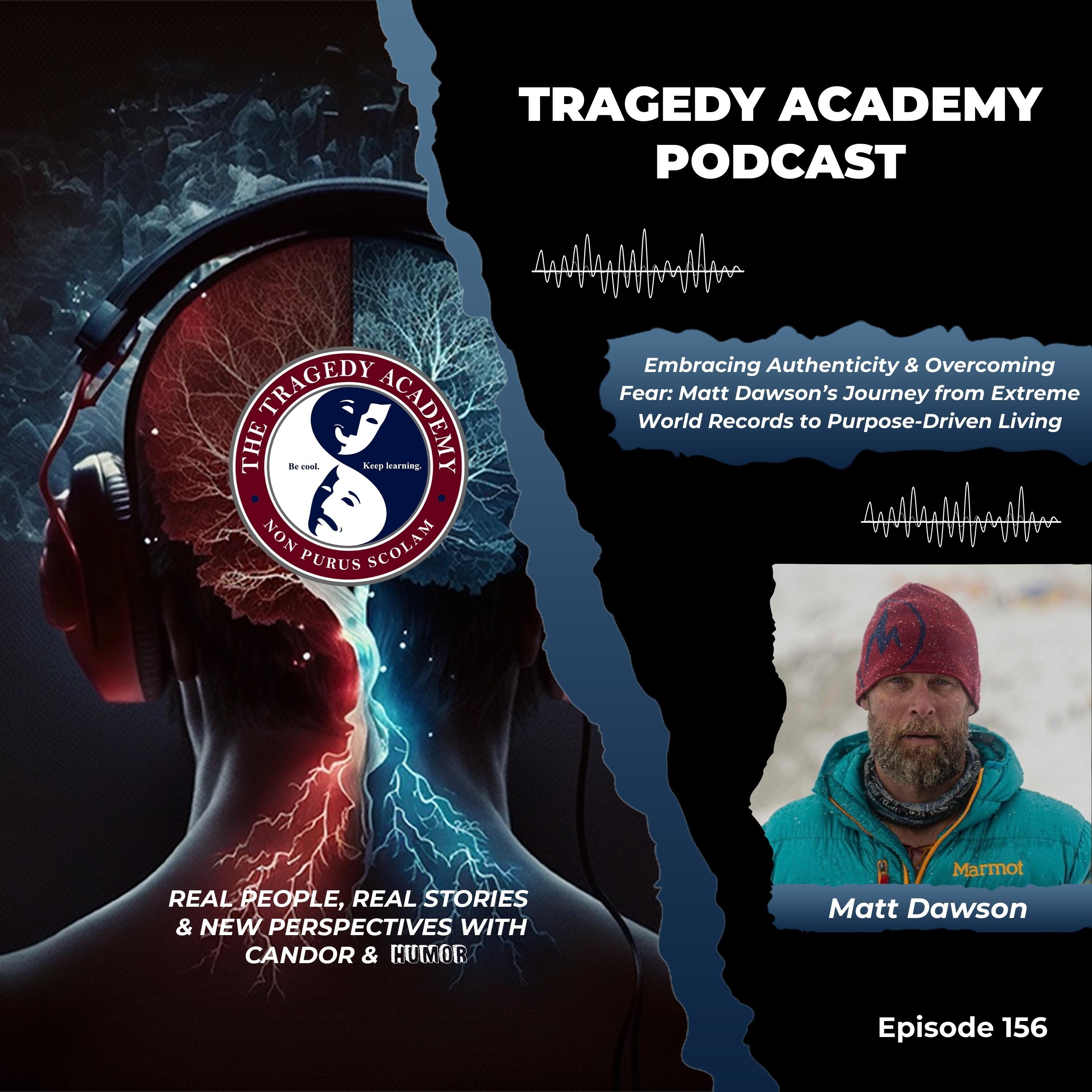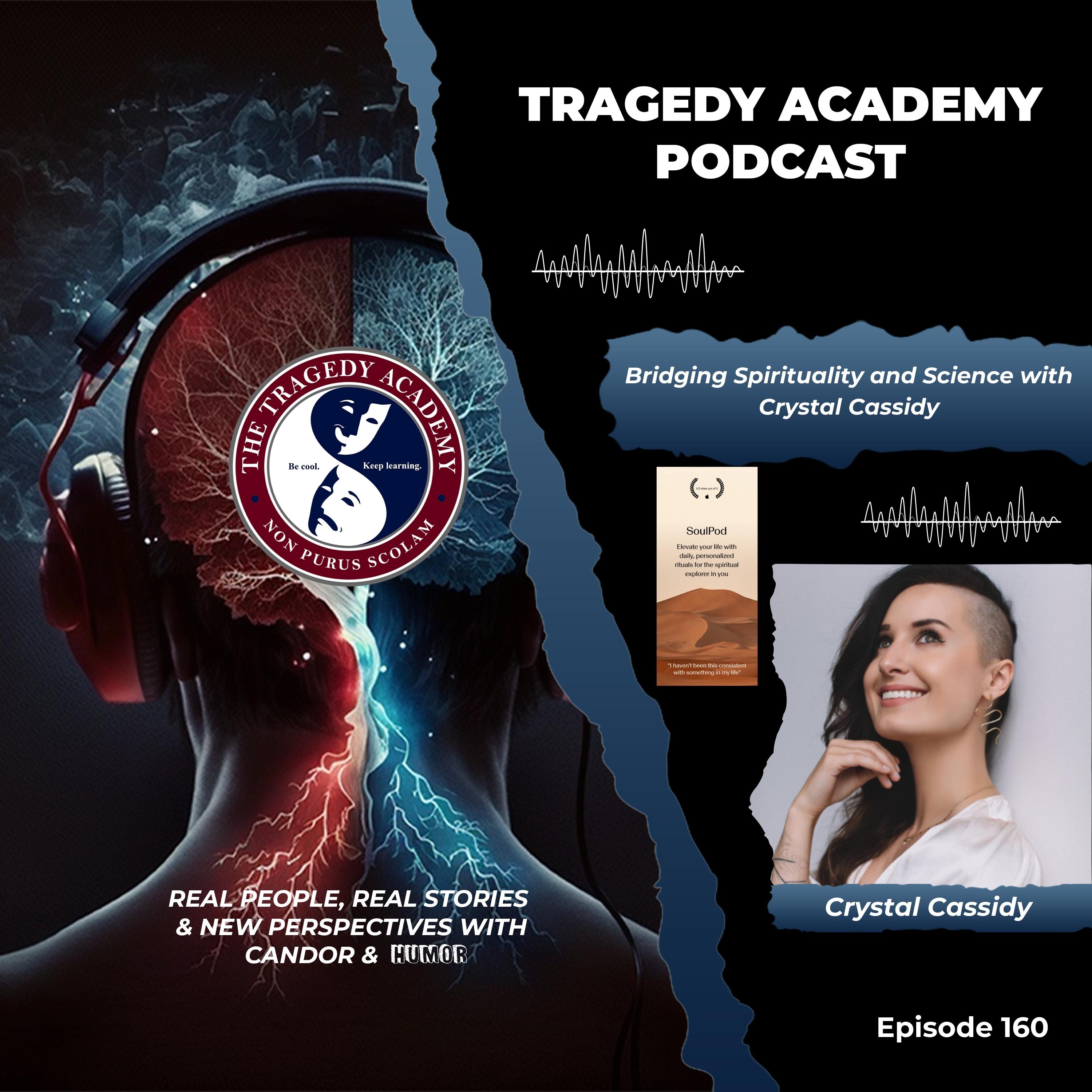The Path to Overcoming Tragedy: Lessons from Joe Legolvan
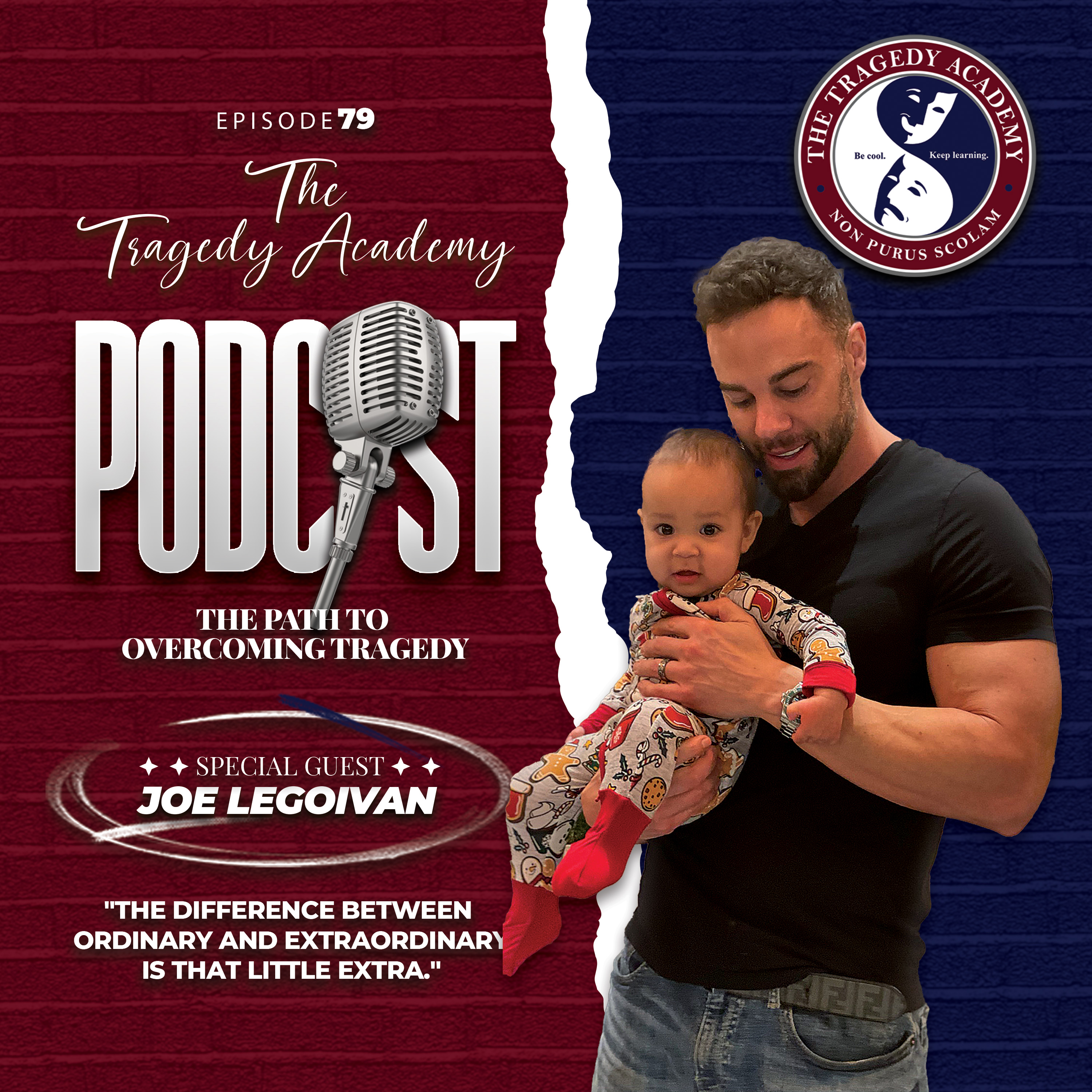
Welcome to The Tragedy Academy, where our guest Joe Legolvan shares his journey of overcoming personal tragedy and transforming his life into a successful real estate investor, entrepreneur, and mindset and life transformation coach.
Introduction:
In this episode, we have Joe Legolvan, a father, multimillionaire real estate investor with over 100 doors, owner of four businesses, and a mindset and life transformation coach specializing in depression recovery, goal creation, and personal achievement. He is also the co-author of the 5-star rated book “The Storyteller.”
Joe's Journey:
Joe shares his journey of spending a decade as a spiritual counselor in the Denver jail and how he shared a profound message of overcoming while creating several successful businesses and becoming a multimillionaire real estate investor. He also opens up about the tragedy of losing his sister to depression and drug-induced suicide and how he could take the lessons he learned from this tragedy to help others with depression and anxiety in healthfully and effectively.
The Message and Ideas Shared:
Joe's message and ideas are not only helpful for those who may be struggling with depression but also for anyone looking to take their life and vision to the next fantastic level, regardless if that is financial, physical, spiritual, or mental.
Conclusion:
Thank you, Joe, for sharing your inspiring journey with us today. We hope our listeners will take away valuable insights and lessons from your experiences.
Call to Action:
If you want to learn more about Joe and his work, visit @mentalhealth_fitnessdad.
Remember to subscribe to The Tragedy Academy for more inspiring stories and valuable insights. And, if you liked this episode, please leave us a thetragedyacademy.com review and share it with your friends.
Support Joe:
E-Mail: joelegolvan21@gmail.com
Instagram: @mentalhealth_fitnessdad
Amazon Books: The Story Teller
Connect
- Make sure to list guest links here...
- Visit our website to find links to our YouTube channel, other social media, show notes, and more!
- Make a beautiful podcast website with Podpage.
- Explore professional recording options with Riverside.fm.
- Like Jay's t-shirt from this episode? Get your own at INTO THE AM.
- For Tragedy Academy-recommended books and authors, visit our Bookshop.
*Some of the links above are affiliate links, and The Tragedy Academy will receive proceeds from purchases made using them.*
Mentioned in this episode:
Connect with us!
📲 Connect with us! https://www.thetragedyacademy.com ✨ Resources & Affiliate Links: 💻 Create your own stunning podcast website with PodPage: https://bit.ly/3LSCBh5 🎙️ Elevate your recording game with Riverside.fm: https://bit.ly/3ImjNWD 👕 Love Jay's t-shirt from this episode? Get your own at INTO THE AM: https://bit.ly/431MLD5 📚 For Tragedy Academy-recommended books and authors, visit our Bookshop: https://bit.ly/42pPHcv 📲 Connect with us! 📺 Don't forget to Subscribe to our YouTube channel! 💥 https://www.youtube.com/channel/UCEUXqlregig6vcrvuVNGlKg 🙏 If you enjoyed this episode, please like, share, and subscribe to our channel for more enlightening discussions and hilarious moments. Be cool, and keep learning! 📲 Connect with us on socials! YouTube: https://www.youtube.com/channel/UCEUXqlregig6vcrvuVNGlKg Instagram: https://www.instagram.com/thetragedyacademypodcast/ Facebook: https://www.facebook.com/TheTragedyAcademy Twitter: https://twitter.com/Tragedy_Academy
This podcast uses the following third-party services for analysis:
Podcorn - https://podcorn.com/privacy
Chartable - https://chartable.com/privacy
The Tragedy Academy is a show created to bridge societal divides in a judgment-free zone using candor and humor.
Be cool. Keep Learning.
Transcript:
Welcome to The Tragedy Academy, where our guest Joe Legolvan shares his journey of overcoming personal tragedy and transforming his life into a successful real estate investor, entrepreneur, and mindset and life transformation coach.
Introduction:
In this episode, we have Joe Legolvan, a father, multimillionaire real estate investor with over 100 doors, owner of four businesses, and a mindset and life transformation coach specializing in depression recovery, goal creation, and personal achievement. He is also the co-author of the 5-star rated book âThe Storyteller.â
Joe's Journey:
Joe shares his journey of spending a decade as a spiritual counselor in the Denver jail and how he shared a profound message of overcoming while creating several successful businesses and becoming a multimillionaire real estate investor. He also opens up about the tragedy of losing his sister to depression and drug-induced suicide and how he could take the lessons he learned from this tragedy to help others with depression and anxiety in healthfully and effectively.
The Message and Ideas Shared:
Joe's message and ideas are not only helpful for those who may be struggling with depression but also for anyone looking to take their life and vision to the next fantastic level, regardless if that is financial, physical, spiritual, or mental.
Conclusion:
Thank you, Joe, for sharing your inspiring journey with us today. We hope our listeners will take away valuable insights and lessons from your experiences.
Call to Action:
If you want to learn more about Joe and his work, visit @mentalhealth_fitnessdad.
Remember to subscribe to The Tragedy Academy for more inspiring stories and valuable insights. And, if you liked this episode, please leave us a thetragedyacademy.com review and share it with your friends.
[00:00:00] Joe: dude, I love it. I love where both of your guys' heads are at,
[00:00:33] Joe: and that's definitely an alignment where I'm at, you know, the, and the, how on top of that where, one of the spiritualities. I'm real into is a course of miracles. I don't know if everybody's ever studied that at all, but big long book, super thick. It's like two or three Bibles put together, but at the end of it, it says, our biggest problem was we forgot not to.
[00:00:54] Jay: Son of a bitch. Is that so? Right. If you don't mind, I want to introduce you by coming in right off of that. [00:01:00] Today we have a special guest who will inspire and motivate us all. Please welcome Joe Lagoon. Did I get that la I already, I asked it
[00:01:09] Joe: Yes, sir.
[00:01:10] Joe: Pretty damn
[00:01:10] Joe: good. Yeah,
[00:01:11] Jay: real estate investor, business owner, father mindset, life transformation coast coach.
[00:01:16] Jay: Uh, you're dedicated your life to help, and others overcome depression, create goals, and achieve personal success. I learned a new term with over a hundred doors in his real estate portfolio. I did not know âdoorsâ was a term for a house sold. , that's super interesting.
[00:01:32] Joe: Yeah,
[00:01:33] Joe: Yeah. Well, and
[00:01:34] Joe: if you listed bigger pockets, that's, that's everything's referred to with doors
[00:01:37] Joe: there, so, you know, that's
[00:01:39] Jay: that's too funny. Maybe it's like the realtors' version of bags. I've got bags, I've got doors.
[00:01:46] Joe: Yeah.
[00:01:47] Jay: I love it. Well, Joe, welcome to the show. The Tragedy Academy of Show created a bridge, societal divides, and a judgment-free zone using candor and hor. , why don't you tell us where you're from, a little bit about yourself, and, uh, we can go from.
[00:01:58] Joe: born and raised. [00:02:00] , but, uh, you know, that aside, I mean, I basically, my mission here is to help people in the mental health space, in the fitness space. I, one of the things, the story that I always remember was when I was younger, going through a breakup, and when you're like 16, 17, going through a breakup, there is pretty much nothing more
[00:02:19] Joe: tragic
[00:02:20] Joe: than that.
[00:02:20] Joe: Like
[00:02:21] Joe: It is, at least
[00:02:22] Jay: It's the world, is
[00:02:24] Joe: Yeah. Oh, oh, it's done, right? Like, you don't, you don't have a reason to live anymore. And me and my buddy, I remember we were working out together at
[00:02:31] Joe: time, And I remember thinking, I feel better. Like I'm not so depressed when I'm working out. And I remember saying if I could align working out with, uh, mental health, I would just, I, I think this, there's something to this. And of course, you know, 20 years later we're like, oh, yeah, duh. Like, those things definitely align. , and so that's kind of my, my focus, my mission, help men, help women, help them overcome things. , and, but [00:03:00] using the physical fitness, kind of using the holistic approach, you
[00:03:03] Joe: will,
[00:03:04] Joe: with that, so,
[00:03:06] Jay: I love that.
[00:03:08] Jay: and I don't think that we focus enough on how physical activity, uh, ties to or correlates with our mental health. , it's time for, an analogy or a metaphor or a description for you. Gary, who talked about Alaska. He loves my descriptions cause they're always insane. They go out into the left field.
[00:03:25] Jay: But I'd like to use visualization as a way to understand how they can impact things. And if we're a total person and say we're like, uh, born as that little baby. And that was us going through life. We're gonna go through water, we're gonna through dirt, we're gonna go through mud, we're gonna go through all these things, and we need to clean ourselves.
[00:03:42] Jay: Well, the shower just doesn't do it all. It might take off the surface, but that inside, when you ring out a sponge or wring out a towel, what happens? You see that muck that's on the inside of it. So when you get the opportunity to work out, to do yoga, to find all these different ways, you're just twisting your towel.
[00:03:58] Jay: You're just ringing it out. You're getting rid of that [00:04:00] negative energy, the mental health issues, all those things. They don't have the same release valve. You can have a problem in the right side of your head that comes out in a run, you know? Or you can have a depressive issue that comes out in a yoga twist, and you'll know it after you've done it for a
[00:04:19] Joe: So true. So true, And, and I like the analogy one of my coaches told me, you know, you can't always think your way into positivity sometimes you gotta act your way into positivity, right? And that goes right back to that subject is, , there have been things I'll be dealing with mentally personally, where I'm, I'm just, , you know, just thinking about something over and over and over again with no real conclusion, no real help to it, and then I'll go work out and then all of a sudden the conclusion comes like that, right? Because we almost have to be in the right state of mind to take on the, the
[00:04:53] Joe: the conclusion that may be
[00:04:54] Joe: trying to get through to us. And if we're not in
[00:04:56] Jay: It's called
[00:04:57] Joe: or yeah, there you go. Our [00:05:00] vibration is not gonna be in alignment with that. So we almost have to raise our vibration up to get to a conclusion so, they align. So four-way down here physically and just emotionally, that, that, that truth that's trying to come to help us it may just shoot right over us until we can bring
[00:05:16] Joe: up.
[00:05:18] Jay: You know, once we come to the realization that we know the truth and that we're only hiding it from ourselves, then we can start to fully understand who we are because our mind is nothing but a big ass liar. There to block us from every linebacker issue that we have in life. You know, just holding itself up there.
[00:05:39] Jay: It's not doing anything but that though. It's also taking up a new fucking job where it's blocking you from behind the side after work in the evening. You know when you get up in the morning, and it's not letting you what, see what's in front of you? You dumbasses. No, sorry, I, no, we're not a dumbass. But we don't see we're, we've got a blocker in front of us that's [00:06:00] telling us what's going on from over
[00:06:03] Gary: a lot of us are dumbasses, you know?
[00:06:05] Joe: Mm-hmm.
[00:06:07] Gary: I get in the rhythm of just being a dumbass, especially when shit's comfortable,
[00:06:12] Gary: you know?
[00:06:13] Jay: bingo.
[00:06:14] Joe: Bingo.
[00:06:15] Gary: me to have some fucked up shit to happen to
[00:06:17] Gary: like reset and get back on track, like way too often where, you know, I'll fall off for two years and just, you know, it'll, it'll take something for me to be like, Oh shit, I gotta get back on it, you know?
[00:06:29] Gary: And, , a lot of my friends never been on it or never will be. So at least I have a lot of people in this, in this world that push me towards that a lot. , you know, and, and I know what to do at least. But I think, uh, a lot of people just don't know and shit's intimidating.
[00:06:44] Gary: Uh, and I'm around athletes every day, my friends that are nutritionist and everything, so they'll tell me. But if you're just Joe Schmoe and you've never had a friend that was a trainer, you've never been to the gym since, you know, junior Heights, I think it's hard to go just. [00:07:00]
[00:07:01] Joe: Yeah. It, it can be. And you know, perfection is the enemy of execution, right? Like where we think we need to be perfect in order to do things.
[00:07:10] Joe: to better ourselves now. And, and really it's just taking that next step, just kind of pushing. If, if it's, you know, you don't walk today, take a 20 minute walk today, those type of things because those are all gonna acculate.
[00:07:23] Joe: You know, it's the small little wins that we need over and over, to really bring us up. Joe: Now, luckily for me, I had a tragedy in my life
that really
kind of made that super clear. So, , we, about a decade ago, I lost my sister to a suicide and what was amazing about that is she was my only sister. We were very similar.
[00:07:43] Joe: We had very similar lives, uh, very similar backgrounds.
Uh, yeah, no, I appreciate that. , but it has been one of the biggest lessons in my life because I saw when she was doing well mentally and what that looked And it was her [00:08:00] working out, it was her having a purpose. It was her not over overdoing everything, not stressing herself out.And it was her not getting caught up in her own mental bs, right? Like questioning her own thoughts, right? Like we, we sometimes will take our thoughts so seriously, uh, take ourselves so seriously and the we're thinking. And a lot of times they are not, they're, they're cognitively dissonant. They're the, the, cognition are not correct, right? and sometimes I think the difference between people who are mentally healthy and mentally unhealthy is how seriously are they taking their own mind? And And if you can listen to some negative thoughts
Joe: sometimes and go, okay, these thoughts are coming in, but they're total bs, they're total bull. And compared to the person who latches onto those and goes,
[00:08:48] Joe: oh my God,it's true.
[00:08:49] Joe: I do suck. My
[00:08:50] Joe: life is terrible.
[00:08:51] Joe: You
[00:08:51] Joe: know? Right. If If
[00:08:53] Joe: you're able to kinda laugh those off,
[00:08:54] Joe: it really makes a
[00:08:55] Joe: difference. yeah. Yeah. So, so in my
[00:08:58] Jay: That's the snow globe.
[00:08:59] Jay: Gary,
[00:08:59] Joe: Oh, [00:09:00] .Yep. You've it.
[00:09:02] Jay: I, I, I, I, that's one of, one of my
[00:09:03] Jay: analogies is a snow globe. Where those are the re, those are the things that are around you on the outside of the glass. And if you reach through it, that bubble and you grab it and pull it in becomes your reality for the duration until you put it back outside the
[00:09:15] Joe: I
[00:09:15] Joe: love that. I absolutely love that. And that is so true. Sometimes we just gotta let it settle. Right? We gotta let
[00:09:21] Joe: those, those snowflakes fall
[00:09:22] Joe: before we can kind
[00:09:23] Joe: of see things
[00:09:24] Joe: clearly again.
[00:09:25] Joe: , but you know, that, so
[00:09:27] Joe: that tragedy's been a big lesson in my life, right? Because I can see where she was unhealthy mentally, and I can see when she was healthy mentally.
[00:09:35] Joe: , and so those contrasts
[00:09:37] Joe: are extremely
[00:09:37] Joe: clear in my life. And so what I've decided and, uh, to do with this is to live my life in a way.
[00:09:45] Joe: Promotes mental health, right? And, and exudes mental health. Me being, I'm here right now, right? That promotes my own mental health because I'm speaking about something that is beneficial to me, beneficial to other people.
[00:09:56] Joe: And it, it clarifies my vision, it helps my thinking.
[00:09:59] Joe: [00:10:00] , just like the
[00:10:01] Joe: mindset stuff as well. , you know,
[00:10:03] Joe: whenever you're doing those type of things, it is just gonna continue to compound. And,
[00:10:08] Joe: you know, I get
[00:10:09] Joe: people struggle. Some people struggle more with weight, some people than others, right? But some people struggle with mentally than others.
[00:10:16] Joe: They have more of a pre, pre, you know, disposition to that. But at the end of the day, we can really alter that by our activities, by our actions. And I'm not a huge, like, like for example, when DJ Twitch died,
[00:10:31] Joe: like I love
[00:10:31] Joe: how everybody was out there and they're just like, mental health matters, mental health But it's
[00:10:36] Joe: it's almost like this abstract thing, like we have no idea of anything about. Right. And I get there's a lot to learn, but we know specifically there are certain things that help us mentally. Right? And those things need to be drilled in more into people's minds, like finding spirituality, finding your workout, finding, talking to people like this,
[00:10:55] Joe: opening
[00:10:56] Joe: up ourselves and, and growing.
[00:10:58] Joe: And these type of activities, I [00:11:00] think should be talked about more, more, uh, investigated basically. Because I think that would really,
[00:11:07] Joe: Uh,
[00:11:07] Joe: support mental health as opposed to maybe just a bper sticker that says
[00:11:11] Joe: you know, mental health
[00:11:12] Joe: matters or whatever. , you
[00:11:14] Jay: my, my autism license plate or whatever it is. Yeah, I know. I'm with you.
[00:11:18] Joe: Which I, I'm
[00:11:19] Joe: all
[00:11:20] Jay: action is the
[00:11:21] Jay: word
[00:11:22] Joe: Yeah, absolutely.
[00:11:23] Joe: And I'm
[00:11:23] Joe: all
[00:11:23] Jay: The, I like, I like what you're saying there. It's
[00:11:25] Jay: just
[00:11:25] Jay: action.
[00:11:26] Joe: It, it is, it, it really is.
[00:11:28] Joe: And we gotta act
[00:11:28] Joe: our way into positive thinking sometimes. So, , I've seen that in my own life and I've seen what I can do personally to affect my mental health.
[00:11:37] Joe: and
[00:11:37] Joe: those are the things I promote in my, in my group. And what I try to do is to focus on those things, to just improve that and and hopefully help more along the
[00:11:47] Joe: way. way.
[00:11:49] Gary: how do you feel about getting this to younger and younger people? You know, in America we don't learn preventative maintenance on anything. It's like shit's broke and you get sick and you're fucked. [00:12:00] When you're 40, now we start fixing everything. We don't like broccoli cuz we're told it's gross. Like we,
[00:12:06] Gary: you know, I like, I think it tastes good now, but when it was presented in a certain type of way, when I was younger, I was like, You know, like what do we do to start getting kids to talk about mental health being healthier?
[00:12:16] Gary: And I mean, like the nfl, I worked with them like six or seven years ago on a program called Play 60, where they went to kids or schools in Vegas and encouraged kids to play for 60 minutes a day. It's like a whole fucking millions of dollars invested to get kids to play for 60 minutes a day. Like that shit's insane to me.
[00:12:33] Gary: You know, I'm 43, I grew up, you know, in the eighties, Cleveland, it was minus 15 and my mom was dragging my ass back inside, you know, like we just went and went and went and like, I think people felt a lot better. Might've been a little cold. But I feel like
[00:12:48] Gary: we gotta figure out a way to get younger people
[00:12:51] Gary: to not learn all these bad habits and to start talking about things and, you know, and it's kind like
[00:12:57] Gary: how do we
[00:12:58] Gary: start getting to [00:13:00] the, you know, at least teenagers or pre-teens in, in a way that, you know, will prevent some of this stuff from happening.
[00:13:06] Joe: That's.
[00:13:07] Joe: definitely the
[00:13:07] Jay: And they gotta gotta they, also have to do it while fighting the dopamine that is being forced down their throat through social media and foods and things of that nature. So it's, it's almost like they have to exercise, but they have to exercise fucking cart full of shit in it and run.
[00:13:27] Joe: Mm-hmm. Yep. Absolutely. That's a really good point. Mm-hmm.
[00:13:33] Joe: Very point. And the way our system and, and the way the world is set up right now is those quick dopamine hits. It's to, you know, it's to get something that you can get super easily Right. Without having to put any work in. , and that's a million dollar question, you know, how do we get kids out to play again?
[00:13:52] Joe: How do we get
[00:13:53] Joe: 'em more in a
[00:13:53] Joe: healthy state?
[00:13:54] Joe: And the way I always
[00:13:55] Joe: look at it is like our ancestors, like even like a hundred years ago, what were we [00:14:00] doing? We were working physically, right? We were using our bodies physically. What else were we doing? We had a community. Because if you didn't have a community, you were, you were dead, right?
[00:14:09] Joe: And fast forward, and we were eating
[00:14:11] Joe: all organic food, right? We were doing all these type of things. Fast forward a hundred years, we were eating processed. We don't have a community because most people are
[00:14:20] Joe: isolated. Nobody's, you know, people are scared to talk to each other, especially guys. Right? They're scared to open up about things, and then we're not working physically.
[00:14:27] Joe: So we've taken away the three things that are probably the most important part
[00:14:31] Joe: of being han and feeling normal, quote unquote. We've
[00:14:35] Joe: taken that away and we wonder why there are so many people struggling, right? , and so I think it's a service to our kids. I've, you know, I've got a, a, a little kiddo, and that's one thing that for sure I'm gonna be focusing on with them is
[00:14:47] Joe: getting outside,
[00:14:48] Joe: having that community,
[00:14:50] Joe: , in,
[00:14:50] Joe: and having fun and exploring that, and exploring outside, right?
[00:14:54] Joe: Because I'm like you, I'm, I'm 38 now, but back in the day, we would just go
[00:14:58] Joe: outside all
[00:14:58] Joe: day
[00:14:59] Joe: long and just play [00:15:00] because we, you know, we had Nintendo, but that
[00:15:02] Jay: We didn't wanna
[00:15:03] Joe: Yeah. exactly,
[00:15:05] Joe: but it, it certainly wasn't the level of the games nowadays, you know, and I have no
[00:15:08] Joe: problem with video games. It's, it's whatever, like, I think everything I balance, but I think we, we just came way far away from balance there.
[00:15:15] Joe: So,
[00:15:15] Jay: I think one of the things that we're missing is a han or as a society is the word purpose. Because without that word, a lot of the things that we're asking people to accomplish to become happy, they're doing without any internal drive. If you've got no flame, you've got no, you know, no ability to fuel a fire, right?
[00:15:37] Jay: And that fire has to come somewhere within. I believe that that's authenticity. And I think that if we foster that in our younger generation and we say, look, you're perfect the way you are, the way you were born, the way that you came out now, find whatever it is that you feel the most passionate about as a [00:16:00] child, and just go, go, go, go.
[00:16:03] Jay: Because it's going to take you to exercise. It's going to take you to success. It's going to take you to friendships. It's going to take you 99% of the time, it's gonna take you to a life of service. Because that's where we find the most fulfillment. And we see kids, kids always wanna give to each other.
[00:16:21] Jay: They wanna share, they wanna do all these things up until they're told that they have to have more than someone else in order to get favor.
[00:16:26] Joe: Mm.
[00:16:27] Jay: Up until then, they're all
[00:16:29] Jay: just in the same bowl enjoying life. So I think if we tell our kids that they need to be themselves authentically, they're gonna find a lot of purpose and they're gonna be able to have that base level happiness to work from and really achieve much bigger goals other than just getting out of the chair.
[00:16:50] Joe: Dude. Absolutely man. And the big why, right? The big purpose. That's everything right there. , and that is not discussed enough and I couldn't agree a hundred [00:17:00] percent, you know, more. That is, I, I totally agree with that. And that's a big part of the whole kind of message that I talk about is finding that purpose.
[00:17:09] Joe: And even
[00:17:09] Joe: not
[00:17:09] Joe: just with younger kids, but with older, older people as well. , once you find that you get drive and you get motivation and you get focused, , and to have a purpose is pretty much everything. And one of the things I always talk about is like our
[00:17:24] Joe: purpose. our your, our
[00:17:26] Joe: purposes are unique, and yet they're all the same.
[00:17:29] Joe: And to me, our, our purpose ultimately is to become the best version that we can be, our best unique self that we can be. And like you said, that requires us being physically fit, uh, mentally fit, emotionally fit. Because when we do
[00:17:44] Joe: that,
[00:17:45] Joe: , we end up exuding our own unique talent, our own unique self, right?
[00:17:50] Joe: Like, it's not a comparison thing. And I think with the self-improvement space, a lot of people get into that mindset where they're like,
[00:17:57] Joe: well, I
[00:17:57] Joe: don't
[00:17:57] Joe: want to have
[00:17:58] Joe: six pack, or, I don't wanna look like [00:18:00] this, or I don't want to have, you know, millions of dollars and blah, blah, blah. Well, then don't, right? It's who cares.
[00:18:04] Joe: It's basically what you truly can be in your own heart,
[00:18:09] Joe: what you truly wanna be, and then going for that, just like you said there. And people have been kind of lost in that. And I think some of that comes from the comparison that we have in this world. , in comparison.
[00:18:22] Joe: a lot A lot of people will look at the idea of like, oh, you know, if I'm looking at somebody way up here, I feel bad about myself.
[00:18:28] Joe: And that's true, right? Because we're
[00:18:29] Joe: comparing ourselves to somebody higher. But it's also true on the other end of the
[00:18:33] Joe: spectr where sometimes our friends are at such and such level, like Gary was saying, you know, cer certain people he is around and stuff.
[00:18:39] Joe: And if you try to rise above that, you're like, eh,
[00:18:42] Joe: maybe I'm kind
[00:18:43] Joe: of, I'm kind of getting a little high from my friends. I might wanna bring myself down a little bit, uh, you know, in, in certain ways and stuff. And so comparison will also limit us. And the, the story I always like to tell is like, what happened if Gandhi said he just wanted to be a little better than his friends?[00:19:00]
[00:19:00] Joe: you
[00:19:00] Joe: know, what happened if if Jesus just said he wanted to build a few more houses than his father or whatever, right?
[00:19:06] Joe: Like, and
[00:19:07] Joe: he's just like, that's my goal in
[00:19:08] Joe: life. And he was comparing himself to these people. His unique purpose, his unique self, and his unique goal in life was so far beyond everybody around him. Nobody could compare to him and but he just became the best version of himself. And ultimately, why do we become the best version of ourself to give that
[00:19:27] Joe: gift to the world?
[00:19:28] Joe: We wanna give
[00:19:29] Joe: ourself to the world, every aspect of ourselves.
[00:19:32] Joe: And when you wake up
[00:19:33] Joe: knowing that if I'm putting in the best food in my body, if I'm giving myself the best mental health, possible, physical health, reading, learning, growing, that I'm gonna just be a savage and I'm gonna be able to give out this amazing version of myself
[00:19:47] Joe: to everybody that I love.
[00:19:49] Joe: Even people I don't know yet that I love, right? Because I believe ultimately we're gonna meet new people that later on we're gonna be like, damn, I had an impact in your life and I, and I didn't realize I love you, [00:20:00] but I love you. Like you're awesome. You know? So we are, we are giving the best version of ourselves out to be to as of the purpose.
[00:20:08] Joe: And I think we all have that ability, whatever level we're at, whatever, , our unique purpose can be, that can, that can definitely guide right through all of those. So appreciate you bringing that
[00:20:18] Joe: up.
[00:20:18] Joe: up.
[00:20:21] Gary: Back to like a
[00:20:22] Gary: hundred
[00:20:22] Gary: years ago, like you had to be good enough to just survive at a point. You had to be strong enough or smart enough, or work hard enough to like figure it out to get fucking meat milk and have a roof and fire shit, you know? So at, at some level you had to be at least x good to, to not.
[00:20:41] Gary: So at some point,
[00:20:43] Gary: like most, a lot of people's purpose was just survival and then there was the people around that rose too much more. But like now it's like it's so easy to not even have to eat your own food or water or shelter or, or like really anything that, like it's, you [00:21:00] don't have to even lift anything ever if you don't want to or go anywhere or build anything or you know, it's it at some date in the 1920s or thirties or forties, like at some point in the last hundred 50 years, it just changed I think where survival wasn't really that hard anymore.
[00:21:19] Gary: And then we just
[00:21:20] Gary: started getting softer and softer and lazier and.
[00:21:25] Jay: So we removed, right? Those basic needs that have to be met through the technologies that we've created and the hard work to lay a foundation where life isn't a grind to exist. I'm just curious, when did we stop just going outside to play? Like can't this replace a lot of the bullshit that we're talking about?
[00:21:50] Jay: Like we've created a whole fucking plethora of db shit that we do as hans that we don't need to [00:22:00] to exist. Why can't we go out and be kids? Why can't we run out there and just fucking play and chase each other around and laugh? There's your.
[00:22:11] Jay: Go play fucking lightsabers. Gary pointed that out to me. We had a guy that used to be on the OR that was on the show while back.
[00:22:17] Jay: Sam Suarez, he's from Ink Masters or one of those. , and in his off time he plays, uh, you know, he does a lot of film work, but he also loves lightsabers and he's always running around with them and swinging 'em at shit. And I'm like, that's what we're supposed to do.
[00:22:33] Jay: Like, you can't be happier than when you're sword fighting your fucking
[00:22:36] Joe: right.
[00:22:37] Joe: right.
[00:22:38] Jay: that
[00:22:39] Gary: Now
[00:22:39] Jay: wrong.
[00:22:40] Gary: a different show. We're a different time.
[00:22:46] Gary: Yep.
[00:22:47] Jay: Well, I mean, it's all in the eye of the beholder. I mean,
[00:22:49] Jay: well, the beholder.
[00:22:50] Gary: it's in the eye. We got holding and eyes now and uh
[00:22:54] Gary: Geez.
[00:22:56] Jay: That's it. That's the rule though. You never make eye
[00:22:58] Joe: Yeah. Yeah, yeah, Oh, [00:23:00] there's a That's what she here for. sure.
[00:23:02] Joe: Sure.
[00:23:04] Joe: Oh man. No,
[00:23:05] Jay: were helping society and
[00:23:07] Joe: man. No, that is, that is so awesome and so true, right? Like we gotta play.
[00:23:11] Jay: Definitely gotta play.
[00:23:13] Joe: To piggyback on that, it's something I always say, if, if we're taking life too seriously, we're not gonna have energy to take life seriously, right?
[00:23:22] Joe: Like, if we don't realize metaly, that everything's okay, that we're okay, that we're connected to each other, we're connected to our creator, ultimately at the end of this, we return back to that if we have that kind of outlook in life. Like a metaphysical playing field. Everything's all right. And if we're taking life way too seriously, we're not gonna have energy to take life seriously. We're not gonna be able to enjoy and become the best version of ourselves. Cause we're gonna be too damn stressed out. And I think the, the universe, god, whatever you wanna call it, has a wonderful sense of hor.
[00:23:55] Joe: Our life down here is kind of like a big game.
[00:23:57] Joe: So ultimately,
[00:23:58] Joe: if we have that attitude in [00:24:00] life, non seriousness, fun, enjoy,
[00:24:03] Joe: we're gonna be able
[00:24:03] Joe: to accomplish way more than if we're taking this whole dream way too seriously.
[00:24:07] Joe: So
[00:24:07] Joe: anyway, I had to
[00:24:09] Joe: on that idea there.
[00:24:09] Joe: there.
[00:24:10] Jay: no, no, you're right. There's a Chinese philosophy I think that says worry is preposterous. , I wouldn't say it's like a Daoism or something like that, but it makes perfect sense because worry is not rooted in the now. Worry is rooted in the future, which doesn't exist. It's always now you're spinning yarns in your head or your mind is trying to throw that blocker out there in advance, speaking lies over his shoulder.
[00:24:38] Jay: Right? And that's just how we exist day to day. Did wanna switch topics a little bit, because I have one of the things that you've done with your life, I'm super fascinated with and I, I think that people could benefit from hearing this. , and is that, that's that you were a spiritual counselor in the Denver jail system, is that
[00:24:58] Joe: It is. Yeah,
[00:24:59] Joe: that, [00:25:00] yeah. Appreciate
[00:25:00] Joe: you bringing that up. Yeah.
[00:25:01] Joe: I did that for about 10 years, uh, pre until Covid hit. , which means I would go in there about once or twice a week and meet with, with inmates and talk to them and just kind of help them through their, their, struggles and, ,
[00:25:15] Joe: kind of
[00:25:16] Joe: walk them through, uh, maybe becoming better versions of themselves.
[00:25:20] Joe: And I talked to everybody. I mean, I talked to murderers, I talked to, uh, uh, rapists, I talked to the, the whole gamut, right?
[00:25:28] Joe: , and the funny
[00:25:29] Joe: thing is, is a lot of times people view criminals as being
[00:25:36] Joe: sociopathic in the sense of like, and, and I'm sure there's some of that there. Like obviously there's probably a lot of that there.
[00:25:42] Joe: A lot of selfishness, a lot of of, of not thinking about other people's feelings. But what I learned from talking years and years, these guys that basically
[00:25:53] Joe: they hold
[00:25:54] Joe: on to so much guilt that they end up self-sabotaging. [00:26:00] That guilt
[00:26:00] Joe: was the start of their self sabotage. Like for example, I had knew a guy he was getting out in in a few months and he had, you know, a job lined up.
[00:26:09] Joe: He had his whole life lined up. He ends up going out and, and getting some, some Bruno, which is like alcohol that
[00:26:16] Joe: you can
[00:26:16] Joe: get in jail, gets drunk like a week before his probation
[00:26:19] Joe: gets caught and then
[00:26:20] Joe: ends up another five years.
[00:26:23] Joe: and I find out why. Like, what the hell man? Like, why would you do this to yourself?
[00:26:27] Joe: You, you've lived, you know, a certain way and you've, you've done all this work to get out and now you just completely blew it. And really, I think inside is he just had this negative self view of himself that he didn't feel worthy
[00:26:41] Joe: of
[00:26:41] Joe: anything more, right? And
[00:26:43] Joe: so what my
[00:26:44] Joe: job in there was trying to expose them to their real self, trying to expose them to the higher self,
[00:26:50] Joe: to
[00:26:50] Joe: their true intention behind the ego, behind the mask, if you will.
[00:26:55] Joe: , and once we were able to co connect with that, then people stopped self sabotaging and [00:27:00] they actually started living a better life and they started making better decisions. So, , and of course I utilize that as well in my own life. If I'm starting to self-sabotage, there's probably some self-hatred going on, something I haven't forgiven myself for some, some, kind of guilt I'm holding on in my own heart.
[00:27:15] Joe: And, uh, and I watch out for that because we are our own worst enemies and our own best friends. But yeah, that's one lesson from that, so
[00:27:24] Gary: People get institutionalized. I mean, they drop you off with 90 bucks at the fucking bus stop and tell you good luck and been in there for seven years and your family's gone. You don't have a job.
[00:27:33] Gary: You know,
[00:27:34] Joe: that
[00:27:34] Joe: too.
[00:27:35] Gary: you know, it's, uh, people freak the fuck out about that
[00:27:38] Gary: all the
[00:27:38] Gary: time, and at least you got, you know, not to be
[00:27:41] Gary: too cliche, but three
[00:27:42] Gary: hots
[00:27:42] Gary: in a fucking cotton or somewhere like Denver or a where I'm from.
[00:27:45] Gary: It's fucking cold. They drop you off in December at the station. Like, shit, you might stab someone to go right back
[00:27:52] Joe: Yeah, dude. Yeah,
[00:27:54] Jay: Just to go
[00:27:55] Jay: back,
[00:27:56] Joe: Yeah.
[00:27:56] Joe: Right. And man, if I, was in Ohio, I I think I'd [00:28:00] be yeah. Oh yeah.
[00:28:05] Gary: It's a rough spot.
[00:28:08] Jay: I'm in Florida, so I, I can see why you're either baking your brains here or you're up there freezing 'em, one or the other. But we've talked about how there is a direct flight from Ohio to Florida, like there's some kind of path that has been forged between those two
[00:28:23] Jay: states.
[00:28:24] Gary: express.
[00:28:27] Joe: Man, and people
[00:28:28] Joe: don't realize, man, Ohio
[00:28:30] Joe: is
[00:28:31] Joe: is sketch filled man.
[00:28:32] Joe: So we, so we have a real
[00:28:33] Joe: estate mis as well,
[00:28:34] Joe: but we have a, we had a duplex out there in certain
[00:28:37] Joe: spots, right. Ohio's nice spots too, obviously. But we, we don't really have ghettos
[00:28:42] Joe: like we do in Colorado like you guys do in Ohio, man.
[00:28:45] Joe: So I was in Indianapolis
[00:28:47] Joe: and we had, we bought this duplex and I swear on everything.
[00:28:51] Joe: It was right next to a trap house
[00:28:53] Joe: and the guy's running drugs
[00:28:55] Joe: in and out. I'm watching crack
[00:28:56] Joe: heads come in and out and
[00:28:57] Joe: he comes out and I start talking to him. He is [00:29:00] actually a really nice guy,
[00:29:01] Joe: you
[00:29:01] Joe: know,
[00:29:01] Joe: whatever. But
[00:29:02] Joe: he was like, it was a
[00:29:04] Joe: total drop. Oh yeah. And he's telling me, Hey, you know, we watch each other's backs in this neighborhood.
[00:29:09] Joe: I'm just so glad you're here, blah, blah, blah, And I'm just like, damn, you guys
[00:29:12] Joe: go hard in Ohio, man. So don't know. People don't know
[00:29:16] Gary: mean, it's like in Cleveland, there's, you know
[00:29:18] Gary: in the metropolitan areas, 1.7 million people, there's already over 700 abandoned apartment complexes, 10,000 abandoned homes. , every mall I ever went to as a kid is abandoned. Every place I used to play is gone.
[00:29:31] Gary: Elementary schools are
[00:29:32] Jay: Oh, this sounds like a place I would've loved as a kid to run around and explore while it's
[00:29:36] Gary: Yeah. Until you throw a toilet through the wall and a hundred rats bail out and fucking attack you, uh, and then
[00:29:41] Gary: you have nightmares
[00:29:42] Gary: for year.
[00:29:43] Gary: It did happen, and it's, I have nightmares to this day, but, , it, it's, it's bad. It's like, you know, it's, uh, talk about mental health and shit. You know, imagine everything's gone.
[00:29:54] Gary: You know, you're walking past 10 blocks of abandoned buildings to go to school to, you know, wait outside for an hour [00:30:00] and a half, you know, and the metal detectors don't work. You got no. , you know, there's no stalls anymore. There's just three toilets up against the wall. There's not even a
[00:30:08] Gary: fucking door on the bathroom
[00:30:09] Gary: anymore.
[00:30:10] Jay: Prepping you for open pee
[00:30:11] Gary: I mean, it's like, it's a, it's a nightmare in those places.
[00:30:15] Gary: ,
[00:30:16] Joe: I believe it, man. I didn't.
[00:30:17] Gary: day. Cause the,
[00:30:19] Gary: yeah, it's, uh, it, it's, it's rough in that, uh, you know, oh, more people like you going and investing, buying real estate and stuff. Like, I mean, you need it somehow because the industries are all gone.
[00:30:32] Gary: And, you know, even in like Chicago, places like that, they're big enough to like, have some business there. But the Gary Indianas and Toledos and Youngs Towns and Clevelands, like, there's not much, you know, really left there. So it's gonna be a huge shift soon,
[00:30:49] Gary: you know?
[00:30:51] Jay: Nobody's pulling anybody up out of there either. They're not, they're not going in there and saying, looking for what
[00:30:56] Gary: no, you know, I don't wanna get too political. I normally don't. You have, you know, you have [00:31:00] a, a system that's meant to just give people just enough. , and nothing to do much more. So,
[00:31:06] Gary: you know, it's,
[00:31:07] Gary: uh,
[00:31:07] Jay: until you become undesirable.
[00:31:09] Gary: you need the vote, you know, and, and, you know, the, it's, it's rough. There's no jobs, even if you want one.
[00:31:16] Gary: Really, we're not taught entrepreneurship of any, you know, support except from the drug dealers,
[00:31:21] Gary: honestly. And, uh, it's like, it's getting, it's getting pretty rough in like 80% of this country that are, you know, the flyover states. But it's about to like really be a problem, I think. Cause
[00:31:34] Gary: I mean, no
[00:31:35] Gary: water.
[00:31:36] Jay: Places like Mississippi, Arkansas, all that stuff. They're the forgotten man. It's still backwards there. That's what people don't realize. One of the things that sticks out to me is I grew up, you know, poor, so you didn't get the same things that you got in the middle class or the upper class. And one of those things is technology, right?
[00:31:56] Jay: We take for granted that technology comes with [00:32:00] money, right? So the race started for everybody else in the country about 20 years ago. The race started, or everybody else got the gun in Mississippi, Arkansas, and all these other places when phones got given out with welfare and the first internet connection they ever had in their life, and now they're being force fed.
[00:32:24] Jay: So much rhetoric and BS on social media because guess what? Picture's worth a thousand words. You know, Randy out in fucking Mississippi, reading through his social media feed for the first fucking time in a generation, you know, and his family is gonna believe that Hillary Clinton has octopus legs that nobody knows about because there's a picture of it, you know?
[00:32:45] Jay: And, and we're just living this life where we're ignoring
[00:32:47] Jay: that
[00:32:47] Gary: a good chance he does Lou, I mean,
[00:32:50] Gary: probably
[00:32:51] Jay: I
[00:32:51] Joe: Well,
[00:32:52] Jay: shit,
[00:32:52] Jay: I'm just making
[00:32:53] Joe: all,
[00:32:53] Joe: we know Clinton
[00:32:54] Jay: believe.
[00:32:55] Jay: Be
[00:32:56] Joe: is now No Just kidding. But yeah, [00:33:00]
[00:33:00] Joe: Agree.
[00:33:01] Jay: a shirt,
[00:33:02] Joe: another.
[00:33:03] Gary: I a
[00:33:03] Gary: hundred percent, he's gonna spend four hours on
[00:33:05] Gary: that.
[00:33:07] Joe: I
[00:33:07] Joe: will go down the rabbit hole of Hillary Clinton's octopus things But yeah, no, it, it's definitely an issue with that because people don't have
[00:33:40] Joe: the, the idea to be able to validate things, right. Like through through truth. And what's sad about that too, is it just continues to isolate us.
[00:33:49] Joe: That's why I, I personally, like I, I've had my political beliefs, blah, blah, blah, but I try to just keep it kosher because I want everybody to come to me. I don't, I want
[00:33:58] Joe: the, the
[00:33:59] Joe: hardcore right wing [00:34:00] Republican to come to me. I want the hardcore, uh, left wing liberal to come to me. I want everybody open because
[00:34:06] Joe: I feel like at the end of the day, People are struggling with the exact same things.
[00:34:10] Joe: Right? What, whatever your political
[00:34:12] Joe: belief. And that's,
[00:34:13] Joe: that's a big issue is people think they're so different. Like, oh, I believe this here and they believe this here. So we're just,
[00:34:20] Joe: you know,
[00:34:20] Joe: oil and water. In reality, we all have the same loves. We all have the same problems, we all
[00:34:25] Joe: have the same,
[00:34:26] Joe: uh, self, , issues, you know, self-confidence issues, and we all are looking for the same purpose.
[00:34:33] Joe: And so to
[00:34:33] Joe: kind of get beyond all that, but, but like you said, in this world with the, the internet
[00:34:38] Joe: and especially the way the algorithms work
[00:34:40] Joe: now where everything's kind of dialed into what you already believe, it's very easy become an echo chamber and not be able to reach the other side or not be able
[00:34:49] Joe: to talk to anybody else.
[00:34:50] Joe: Right? Like, so it's
[00:34:51] Joe: it's really a
[00:34:52] Joe: problem.
[00:34:53] Gary: Yeah, you sit down and have a
[00:34:54] Jay: I laugh when you said
[00:34:55] Gary: Yeah,
[00:34:56] Jay: Sorry.
[00:34:56] Gary: I was gonna say, you sit down and have a beer with a guy like you're [00:35:00] a couple hours later, you're probably gonna see a lot closer to Eye to eye than you did before.
[00:35:05] Gary: You know?
[00:35:05] Joe: Oh, absolutely.
[00:35:07] Gary: you might think that's my
[00:35:08] Gary: mortal enemy, but you
[00:35:09] Gary: just get to talking and have a couple beers or whatever and think people's minds change really.
[00:35:15] Joe: lost cause of
[00:35:16] Jay: experiences.
[00:35:17] Jay: to lenses, and while we can't wear like somebody else's or see somebody else's exact viewpoint, I think that open conversations are kind of like, you know how when you sit down with your friend and you try on their glasses and you're like, fuck, you're blind.
[00:35:32] Jay: I can't see, you know, where you're, you're, you're having like, you're, you're doing this thing. That's the same thing as trying to get somebody's viewpoint.
[00:35:40] Joe: yeah, yeah.
[00:35:41] Jay: Their experiences are their
[00:35:44] Joe: Yep, yep.
[00:35:46] Jay: You can't wear somebody else's fucking prescription lenses unless you're fucking twins or
[00:35:50] Jay: some shit, so you're never going to be able to get the same viewpoint.
[00:35:54] Jay: Oh, I like that. I'm gonna hold onto
[00:35:56] Jay: That one.
[00:35:56] Joe: is, that is a really good analogy. Yeah, very [00:36:00] true. very true. Couldn't agree more.
[00:36:01] Joe: And that's the kind of problem we're having now is, you know, everybody's got, they're just getting the echo chamber of whatever their belief system already is.
[00:36:09] Joe: So it's just getting more and more ingrained. , and people are feeling more and more disconnected from each other. Like, I, I don't know if you guys got
[00:36:16] Joe: big families, but
[00:36:17] Joe: in my family, like, there's always like, everybody's pissed off because somebody else's political beliefs. I'm like, who gives a
[00:36:23] Joe: shit? You know?
[00:36:23] Joe: Right. Like, let's,
[00:36:25] Joe: we're family, like , you know, let's get beyond
[00:36:27] Joe: that, but,
[00:36:28] Joe: oh, did you hear what Aunt Debbie did? She, she put out some blah blah blahs thing and, you know, and I'm like, God, get over it.
[00:36:35] Joe: Like, she's your aunt. Like, what if she dies tomorrow? Are you gonna be happy
[00:36:38] Joe: that
[00:36:38] Joe: she, you know, hated or loved Trp, or whatever? Like
[00:36:41] Jay: you're bitching over an
[00:36:42] Jay: emoji.
[00:36:43] Joe: Yeah, exactly. Some meme
[00:36:45] Joe: fighting over some meme. I'm like, Jesus,
[00:36:48] Joe: No, man.
[00:36:49] Jay: We get real world fight or flight issues that happen. Whenever we get into these experiences, people don't understand a meme can fucking affect you just as bad as a sabertooth tiger did.
[00:36:59] Joe: [00:37:00] dude.
[00:37:00] Jay: Because it's all relative
[00:37:02] Jay: now. It's all relative. You see something that shocks, hurts, appalls you, or makes you fear for your life.
[00:37:09] Jay: You're getting the same fucking terror that you would if a sabertooth tiger was looking you up and down. And then you've gotta go back into reality and put yourself back in check and play the game again with acting like you didn't look a sabertooth tiger in the face.
[00:37:23] Joe: Very true, very true. And again, I think that comes back to if we are dialed in
[00:37:28] Joe: with our purpose, like, and this is something I've noticed when I'm really dialed in all
[00:37:32] Joe: the, the other stuff kind of, I get tunnel vision and that stuff easily falls off my back. But when I'm not in my purpose, when I'm not trying to be the best person myself, I will get caught in these little
[00:37:42] Joe: weird tangents and I'll be the guy arguing on
[00:37:45] Joe: Facebook and stuff.
[00:37:46] Joe: And it's like, man, that is totally not my
[00:37:49] Joe: purpose here.
[00:37:49] Joe: To argue with somebody on Facebook, like I have much bigger things to do. . And that's always a check for me to know like, Hey, am I,
[00:37:57] Joe: am I off track here? And that's one
[00:37:59] Joe: thing I [00:38:00] noticed too, like with my sister, I always, I always reference her because I knew when she was in a bad place
[00:38:05] Joe: and when she was in a bad
[00:38:06] Joe: place, man, she was arguing with everybody.
[00:38:07] Joe: She was pissed off at everybody. And I see that, you know, and I'm like, okay, that is not where I wanna be because I know that's not healthy. I get that. We, we have to stand for our beliefs and we have to have, you know, we
[00:38:19] Joe: have to stand for something obviously.
[00:38:20] Joe: But at the end of the
[00:38:21] Joe: day, there's a lot of hills that you do not to die on in this world because, For me, I'm trying to climb
[00:38:28] Joe: e Everest,
[00:38:29] Joe: right? I have a journey that
[00:38:30] Joe: is only for me. You have a journey that's
[00:38:33] Joe: only for you, and we have to be prepared. We have to be, uh, mentally prepared for this journey. We have to be emotionally prepared for this journey and wasting my emotions and times on some other damn hill
[00:38:45] Joe: that will just get me
[00:38:45] Joe: off my own.
[00:38:46] Joe: Everest
[00:38:47] Joe: is a
[00:38:47] Joe: total waste of, of energy and a total waste of of mind bandwidth that could be utilized to live my best life, enjoy my best life, and give my best out to other people, you know?
[00:38:59] Jay: [00:39:00] You've gotta take on things in the now. I mean, you can have all the causes you want in the world, but if you're dreaming about how great they're gonna be 20 years from now, and you're not spinning shit in. The now, then you're just fucking wasting your time. You're giving yourself anxiety about what you haven't accomplished, when all you have to do is literally stand up, put pen to paper and do it every day if you get up.
[00:39:21] Jay: And if that was your purpose, you wouldn't fucking matter if you're putting pen to paper cuz you enjoy it. And if you sit there and do it, sit there and do it. Eventually, you've gotta fucking scroll a mile long and everybody's reading it a mile away from you and they're following your
[00:39:35] Jay: path. They're going where you've gone because all you did was fucking action, action, action, action.
[00:39:42] Jay: Everything else is just a fucking myth. It's a fucking game. It's make believe the earth is a fucking insane asyl. Prove me wrong,
[00:39:51] Joe: you're so right.
[00:39:52] Joe: You're so right. That's a, one of the, the teachings I really love is, of course miracles. I don't know if everybody's ever studied that at all. And [00:40:00] it's, it's not necessarily religious. It's very psychological. The lady who, who , basically channeled the teaching was a psychologist in New York.
[00:40:08] Joe: Uh, I think she was at Harvard or something, but she was very high level. And basically
[00:40:13] Joe: as you're reading the course,
[00:40:14] Joe: it says there's a part in it. It says, You can congratulate yourself cuz you're no longer insane anymore. which I, I love, I'm like,
[00:40:24] Joe: that's something I'm gonna put on my rese. I'm not I'm, not a hundred percent insane anymore.
[00:40:28] Joe: But it is true, man. We live a wild
[00:40:32] Jay: the right person reading
[00:40:33] Jay: that though. Uh, you know what? I would argue if you felt that you should write it on there because it was funny or in the moment you just wanted it on that sheet, somebody out there was supposed to receive that you missed a, you missed. Because I always say that when you're walking through the store, if you feel like giving somebody a high five, that high five was somebody else's depression that needed to be plugged.
[00:40:58] Jay: That's it. You [00:41:00] knew you were supposed to be high fiving that person, but you went, somebody's gonna fucking judge me for being a corny white guy given a high five in target when that person that you wanted to high five just had their fucking dad die, or their dog die, or you know, maybe they're dealing with something at work, but you give them that one little turning point, or maybe that high five becomes a friendship you never fucking know.
[00:41:24] Joe: Yeah, you are so right that I love that man. And what a cool, cool idea there. And coming out of our comfort zone, right? Coming out of our shell to do something like that. , that's one thing I've learned from the whole social
[00:41:37] Joe: media posting is, man, I have some fears about coming out and explaining how I felt and explaining who I am. And, and sometimes I'll put something out there and I'm like, God, who's gonna see this? Are they gonna judge me or are they gonna think I'm weird because I'm talking about anxiety? Or I'm talking about. whatever? And man, the people that have written me and been like, dude, I needed to hear that like today, like what you [00:42:00] said helped me two days. Like, and you don't know what's going on with them, right? Like they could have, who knows, they could have been, uh, contemplating something horrible that day and you came out with something that you thought was corny or you thought people were gonna judge you. And at the end of the day, that's just me facing myself, having courage.
[00:42:17] Joe: And that's just as hard as doing that extra rep in the gym, right? All of it, all the small things affect
[00:42:22] Joe: the big things. If we're doing the hard thing in the gym, the small things,
[00:42:25] Joe: if we're doing
[00:42:26] Joe: the hard
[00:42:26] Joe: thing on the diet, it's gonna affect the big
[00:42:28] Joe: things. And
[00:42:28] Joe: being able to be the
[00:42:30] Joe: best version of ourself. Being able to give that high five in the story, even though
[00:42:33] Joe: we
[00:42:33] Joe: feel uncomfortable, but you're something inside is telling you to do it.
[00:42:36] Joe: That's what it's all about, right? you know, who cares at the end of the day about
[00:42:40] Joe: six pack abs? Who cares about being ripped? All that stuff doesn't matter.
[00:42:44] Joe: But it does help you
[00:42:47] Joe: mentally to do the
[00:42:47] Joe: things that is your true purpose.
[00:42:49] Joe: Because if you can overcome that pain in the gym,
[00:42:52] Joe: pain of uncomfort discomfort, you're gonna be able to spread
[00:42:55] Joe: that out into other aspects of your life. So I love that man. And what a cool, [00:43:00] cool thing that you said
[00:43:00] Joe: that, cause I,
[00:43:01] Joe: that's definitely something I'm gonna take into play. I'll be five and
[00:43:04] Joe: old ladies at
[00:43:05] Joe: now, so I appreciate that brother.
[00:43:07] Jay: No problem. I, it's for free. I give these out, they sit in my head in like the corners of , but you know, it, my wife laughs all the time because for the longest time I lived my life trying to hide who I was because I was bullied and made fun of for who I was. You know, any of my natural inclinations to be out, you know, extroverted or to, you know, make people laugh or be closer to people, was always told that I was, you know, out of line or that's not cool or whatever it is.
[00:43:36] Jay: , and I think that there's a certain amount of correctness to, you have to go through certain things throughout life in order to find your purpose. , I wouldn't be able to give anybody anything if I didn't have experiences in my past to give me any kind of lens. Just so the lens to just see that people are wearing lenses, I don't fucking know shit about.
[00:43:59] Jay: But [00:44:00] I do know that everybody's playing the game together and not everybody knows they're playing the game and that's not cool. So if we kind of just put a sign up and says, yo, everybody, this is a game, then maybe. Maybe some people won't get fucking fooled anymore.
[00:44:15] Joe: Dude,
[00:44:16] Joe: So
[00:44:17] Joe: true. yeah,
[00:44:18] Joe: absolutely. And to that point, like the idea of, of life being a game. , so I wrote a book called The Storyteller, and it's basically about a young man who finds his purpose in life. , and he meets kind of like a guru type who explains, you know, a little bit about what his purpose is. Yeah, yeah. Right on. Yeah. I appreciate you remember that. So he basically, what the, the old man explains to him at one point is he says, like
[00:44:48] Joe: Rafu was asking me, he says,
[00:44:49] Joe: what would life, what is this life like? Why, how do I exist in
[00:44:53] Joe: this world now
[00:44:54] Joe: that I know I'm eternal? Now that I know I'm a, a spiritual
[00:44:57] Joe: being, having a
[00:44:58] Joe: temporary han experience? [00:45:00] And basically what he says is this life, if you look at it almost
[00:45:04] Joe: like a video game where you're playing the game, , things are going on, you know, and we're totally identified with the character. We believe we are this character in the game,
[00:45:14] Joe: but in reality, you're sitting
[00:45:15] Joe: safe and sound back on the couch.
[00:45:17] Joe: You know,
[00:45:18] Joe: everything's okay, right? Like everything will be okay. When you die, when the game is over, when you die in the game, you're still safe and sound on the couch. What has happened is we've forgotten that we are safe and sound on the couch. We've forgotten that we're eternal. We've forgot we're connected to God, and we've become so identified in this player
[00:45:36] Joe: in the game that we, we get so
[00:45:39] Joe: worked up about
[00:45:40] Joe: the game itself.
[00:45:41] Joe: It's reality. but here's the other crux
[00:45:44] Joe: we can almost take. And I, I had a very spiritual background where I was really into meditation, uh, like three hours
[00:45:50] Joe: a day. I was almost gonna be a
[00:45:52] Joe: monk for a while. And I almost took the other route where I was so pulled back that I was no [00:46:00] longer playing the game anymore. And that's also not it, right? That's also not the place to be
[00:46:05] Joe: because why do we play games in the first place for
[00:46:09] Joe: the fun of them? Why did we join this life in the first place? For the fun of it, for the challenge, for the experience. This is a place where duality, we want duality. We wanted to experience you, me, uh, having limitations, having to overcome these limitations, having to overcome these challenges.
[00:46:27] Joe: And to me, that's what the ultimate quote
[00:46:30] Joe: light men is, is, knowing it's a game and playing our best version of ourself in that game. Not just sitting in a cave and ignoring the game. Oh, it doesn't, it doesn't exist.
[00:46:41] Joe: But
[00:46:41] Joe: also
[00:46:41] Joe: not getting so in invested in the player that you're so anxious and, and depressed
[00:46:46] Joe: when things happen.
[00:46:47] Joe: So it's that kind of, balance there. The kind of, middle path as, as, the
[00:46:51] Joe: Buddha said.
[00:46:52] Jay: You know? I love that you brought this up because I think that you're speaking to a, a certain group of people because we are looking backwards and [00:47:00] we're trying to say that we want to help those that have had no opportunity to get discernment of some sort, right? Because with discernment comes distance and I think that a lot of times it's easy to get stuck in the mere when you do come to this conclusion or you do have a certain amount of self-awareness comes through mindfulness, meditation, whatever, could be plant medicine, doesn't matter.
[00:47:25] Jay: Whatever gives you that discernment. It can also
[00:47:30] Jay: put you on an island. I like looking at history. We've seen like those CEOs or that CFO F or that random person that just fell off the grid, went to Mexico and started selling a rent and surfboards. Right, even though they had everything on the other side.
[00:47:50] Jay: And I think that with discernment comes that choice. I can either go sell surfboards
[00:47:56] Jay: or I can go sell discernment. Those are your two [00:48:00] choices,
[00:48:01] Jay: right? And a lot of people fuck it. Maybe they're supposed to go sit back and relax. Maybe they did fucking 10 lifetimes of fucking coal mining and this time they were supposed to get the fucking, you know, the aha moment and go sit out there and fucking rent surfboards.
[00:48:17] Jay: Or maybe they're supposed to meet somebody out there and give them a chance to rent surfboards. The fuck knows. You know, it's, discernment can be scary though. It can be very scary because you feel like you're speaking a different language and you. I think that we're evolutionary beings, and with that also comes spiritual evolution.
[00:48:38] Jay: And I believe that with those, we take on different sets of energy at each toll gate and at those toll gates, there are languages. You're gifted with a new language at each gate, but it comes at a price, right? You cannot speak the new language to anybody that is [00:49:00] not there yet. You can only speak the language to everybody that's with you.
[00:49:05] Jay: You know the language of the people behind you, but they don't know your new language, so you have to translate from then on out. You are on an island from then on out because you don't get to share the happiness you have on the other side, but the happiness is actually reaching a hand. And giving them the opportunity to find discernment so they can join you at the party on the other side.
[00:49:27] Jay: But there are languages. Languages are a bitch. And it's energetic languages, it's karmic languages. It's all these things that we don't get that nobody's, it's that prescription again, it's prescription lenses. No two people are gonna see things the same.
[00:49:44] Joe: Right. And, and I, I love that you, you tie in so many analogies and metaphors cuz that's, that's really the language of spirituality, right? You have to use analogies. You have to use metaphors to come where people are at, you know? So I love that you do that. Cause I think that [00:50:00] almost they're like, oh, glasses, I understand glasses, therefore I understand they're, you know, has to do with my perception. So, , using those type of analogies is is super beneficial of that. So
[00:50:11] Jay: My , cousin. The least descriptive term he gave me as a superhero name and it was Captain Descri. And I was like, come on man. He couldn't like come up with like something descriptive. He's like, that's the point of it, .
[00:50:26] Joe: that is awesome.
[00:50:27] Jay: the least descriptive
[00:50:28] Jay: thing,
[00:50:28] Gary: It's perfect.
[00:50:30] Jay: ,
[00:50:31] Joe: Yep.
[00:50:31] Jay: I wanna give you a chance to
[00:50:33] Jay: talk about what it is that you're working on right now, , and where everybody can find you, what they can expect by working with you and kinda go from there.
[00:50:43] Joe: Awesome, man. I appreciate that. And you guys have been great. Like I, I love your guys' energy. I love where your heads are at. , and I think more of this needs to happen. Like, I think more open dialogues about spirituality, about uh, who we truly are about being the best version of ourselves needs to come out because, [00:51:00] uh, men of all ages we're struggling.
[00:51:02] Joe: We're struggling to find our purpose, we're struggling to know who we are inside. We're struggling with comparison, we're struggling with loneliness, right? All these different things.
[00:51:10] Joe: And it's
[00:51:10] Joe: podcasts like this that are truly gonna be the bridge that I think are gonna pull a lot of men out of their own, you know, uh, self and their own like kind of negative thinking patterns to go, wow, there's maybe something different. And so for me personally, you, you can find me on mental health underscore fitness ,
[00:51:30] Joe: and it's basically a fitness page, but it's also a mindset page. It's also,
[00:51:35] Joe: ,
[00:51:35] Joe: a, a spiritual page. We go into all of it and I try to look at everything holistically. , and, you know, the, so the program I run is a, , it's basically like a month to month program
[00:51:49] Joe: where you get with me,
[00:51:50] Joe: we meet daily, we talk about where your goals are at.
[00:51:53] Joe: We work on your physical fitness goals. We also work on your mindset goals. We work on vision, creating a vision for your [00:52:00] future, , and work on any lighting, go any limitations in your mind that may be holding you back from that future and work health in in all all forms and fashions. The
[00:52:10] Joe: first part of my program is about pain.
[00:52:13] Joe: So we actually do things that are kind of painful, uh, but they release dopamine, they actually help you. So at times it could be taking a cold shower at another time. It could be putting yourself out there and meeting new people. That can be painful, right? Putting yourself out there. So we face that pain head on.
[00:52:29] Joe: Therefore we can become the best version of ourselves. Cuz once we face it head on, we realize, man, that thing I've been running from really wasn't that bad. And, and now I, I just
[00:52:38] Joe: broke the
[00:52:39] Joe: limitations that I thought I had and now the things that I truly want to be, the thing that's in my own conscience to be seems more attainable.
[00:52:48] Joe: Whereas before
[00:52:48] Joe: it seems so far away. So we really try to break through those limitations to give people a chance to become their own unique purpose, right? To become their own unique self. We want to [00:53:00] support that in every way
[00:53:01] Joe: possible. Giving them the discipline, giving them the motivation and the vision to, to do that.
[00:53:06] Joe: , and so that's basically what my is. It's to help people on that
[00:53:09] Joe: path.
[00:53:10] Jay: beautiful, man. Beautiful. Gary, you have any questions you want to, uh, wrap up
[00:53:15] Gary: It might be kind of turning to a long question, but since you know Fitness Dad is in harmonica and everything, how did you change once you became a dad,
[00:53:25] Gary: your mission
[00:53:25] Gary: change?
[00:53:27] Gary: In in any way, or did it just energize you more or how did things change?
[00:53:32] Joe: No, I love that. It, it did energize me more because I, I realized kids and, and adults as well, we learned from, from looking at people, right? Like,
[00:53:42] Joe: uh, the idea that,
[00:53:43] Joe: one of the topics I was talking about Y yesterday was we, in this world of so much knowledge, like we can look up so many things on the internet, we have endless amounts of knowledge in this world where knowledge is, is so accessible, we need more example.
[00:53:57] Joe: We need more people living their true [00:54:00] self and un unapologetically unafraid to, you know, like you were saying, , to High five Jay, you know, to High five somebody in the store. We need more people to be that because we learn by seeing those types of people. And if my son looks at me and sees, Hey, my dad followed his passion, my dad followed
[00:54:18] Joe: his heart, he lived the purpose that
[00:54:20] Joe: he felt in his own heart was true, and he was unafraid about that, that's gonna give him motivation to do the same thing.
[00:54:26] Joe: So I, I definitely live that as a, , hopefully to be an example in a positive way for him. , so that has definitely energized me. It's energized me in the health and the mental, uh, and emotional state as well to just be the best version of myself so he can hopefully watch those habits, watch those disciplines, and take those on he is older as well. So, great question,
[00:54:48] Joe: Gary.
[00:54:49] Gary: Awesome
[00:54:50] Jay: I love that. Be a lighthouse. I say it all the time. Damn near every show. Uh, you gotta be a lighthouse. Give everybody a. You don't have to draw a whole bunch of lines to get [00:55:00] there. Just stand in place, do your thing, and people will fucking follow you. They'll find where you are and they'll to erect their own
[00:55:07] Jay: lighthouse.
[00:55:07] Joe: Exactly.
[00:55:08] Joe: Exactly.
[00:55:08] Jay: I can't thank you enough, Joe. I genuinely appreciate you. We need more people like you. , the fact that you spend all that time with the people that we've segregated from society as the undesirables, and saw the fact that it's simply a systemic upbringing and, and different ways that people are held back in some way, shape or fashion, whether it be, you know, epigenetic or in this current generation or whatever it might be, there's not many people that, uh, that will take that step inside of those walls and have those conversations, and I appreciate you for that because, and I know they do as well.
[00:55:48] Jay: , there, there's,
[00:55:51] Jay: I I, I can't even put it into words. That to me was one of the things that stuck out to me the most. , and I appreciate you for doing [00:56:00] that because they're
[00:56:00] Jay: hans.
[00:56:01] Joe: hundred percent.
[00:56:02] Jay: They're, They're us. they're us.
[00:56:04] Jay: With a left turn
[00:56:05] Jay: versus
[00:56:05] Joe: you're absolutely right. And, and we always want to know how we heal ourselves.
[00:56:11] Joe: It's through
[00:56:11] Joe: healing, healing others, right? And if we heal the worst aspect of our quote unquote worst aspect of ourself, you know, externally, that really we're just projecting out, we heal. That we actually just healed the worst aspect of ourself.
[00:56:24] Joe: We healed our own shadow,
[00:56:25] Joe: we healed our own. Cuz
[00:56:27] Joe: we all have
[00:56:27] Joe: that, right? I have the ability to completely take a left turn and just go in a very tragic de direction as far as, uh, a negative direction. We all have that dark side to us. But if you're able to love that and, and find those people out, and even though externally they look like inmates or they look like murders or whatever, and I'm able to look at that guy and still see God and that. I just saw it it myself, and I've just healed myself. So
[00:56:52] Joe: ultimately that's what it's all about.
[00:56:53] Jay: it's
[00:56:54] Jay: so cool giving back because there's no downside internally. Like it's so [00:57:00] narcissistic. Once I figured that out, I was like, dude, if I just keep doing things for people, I feel fucking great.
[00:57:04] Jay: So that's the, that's, that's the c t A of the day. Go see Joe and , go, uh, give something back. Pay it forward some way, shape or form.
[00:57:14] Jay: Be a little narcissistic. Make yourself feel good by making somebody else feel good. All right, everybody, be cool and keep
[00:57:21] Joe: Love you guys. I
[00:57:21] Joe: appreciate you
[00:57:23] Gary: Really appreciate it.

joe legolvan
Author/fitness mindset coach/real estate investor
My name is Joe Legolvan
cmt pta cpt
(real estate investor over 100 doors) owner of four business, father, and mindset and life transformation coach specializing in depression recovery, goal creation and personal achievement.
Co-Author of 5 star rated book “The story teller”
I spent a decade as a spiritual counselor in the Denver Jail. I was able to share a deep message of overcoming, while creating several successful business and becoming a multimillionaire real estate investor.
I also lost my sister to a depression/drug induced suicide almost a decade ago, which shook his family’s life, but was able to take the lessons I learned from this tragedy to help others with depression and anxiety in heathy and effective ways.
The message and ideas that I share are generally very helpful, not only to those who may be depressed but also those who are looking to take there life and vision to the next amazing level regardless if that is financially, physically, spiritually, or mentally.








































